Experts have raised fears that high-risk pregnancies may be missed due to the coronavirus pandemic, leading to a potential rise in stillbirths and neonatal deaths.
During a session of Westminster’s health and social care committee, Gill Walton, the chief executive of the Royal College of Midwives, said there was a “fear” among pregnant women presenting themselves to maternity services during the covid-19 outbreak.
It comes as the NHS urges the public to seek treatment for medical emergencies or where necessary – after it was claimed four in 10 people are not seeking help from a GP because of concerns they become a burden on the health services.
Download the new Independent Premium app
Sharing the full story, not just the headlines
Former health secretary Jeremy Hunt, who chairs the committee, said one of the most important elements of maternity safety was to identify higher-risk pregnancies early “so that interventions can be made to prevent stillbirths, complications, or even the death of a baby”.
Mr Hunt added the president of the Royal College of Obstetricians, Dr Edward Morris, had told him he is “worried that some higher-risk pregnancies may be being missed” because of fewer face-to-face appointments and missed scans.
Asked whether she shared that concern, Ms Walton told MPs: “I do share that concern. Some of that is related to the fear of the pregnant population and presenting to maternity services during the pandemic.
“That fear then prevents them sometimes just picking up the phone to call their midwife to say that may be concerned about not feeling well, or that they’ve got reduced foetal movements.”
She continued: “I believe that maternity services have tried their very best to try and keep providing as much of a normal service as possible.
“I do think it’s really important to be getting that message out that maternity services are still open and that women should come forward so that we can keep them and their babies as well as possible.”
The chief executive of the RCM added, however, that follow-ups on women who miss scans and appointments had been enhanced. “One of the positives from the pandemic is the use of technology, so there has been more virtual contact and follow-up with women through midwives and maternity services than before,” she said.
The latest news on Brexit, politics and beyond direct to your inbox
Pressed on whether the government was still on track to deliver on its mission to half the number of stillbirths, neonatal and maternal deaths by 2025, Ms Walton said data was still be collected, adding: “We don’t know yet.”
“I think we have to look at that very carefully. Safety for women and babies is the priority and during the pandemic that has been the priority and the decision making around how maternity services have provided has had safety right at the top of the agenda.”
Separately, Dame Cally Palmer, national cancer director for NHS England, said two-week referrals for cancer were down by 62 per cent during the outbreak.
She told MPs: “Broadly, chemotherapy appointments are running at about 70 per cent of normal levels and the reason for that, and we think we can set them back very quickly because, of course, is they use different facilities and workforce broadly from surgery and the other resources required to respond to Covid-19.”
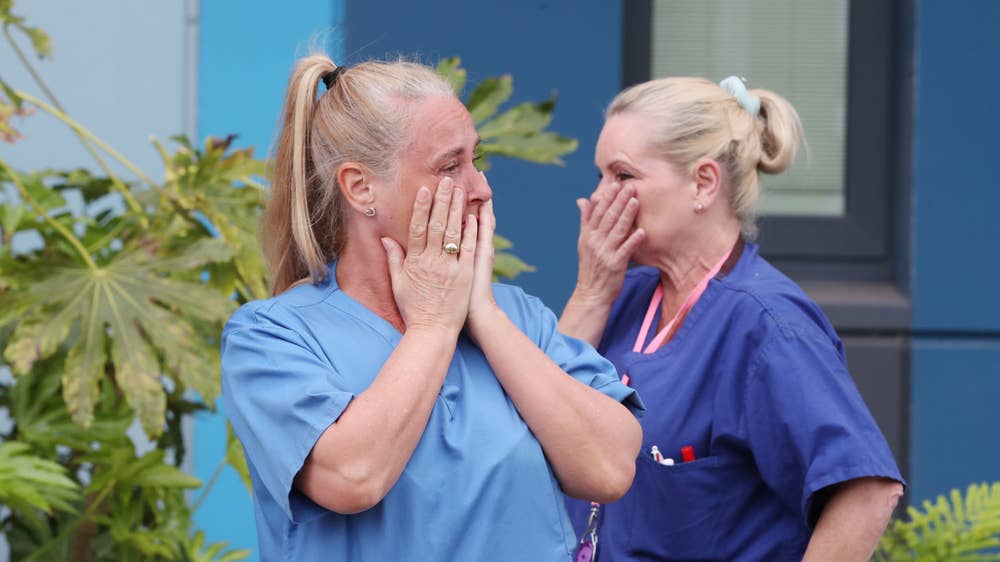
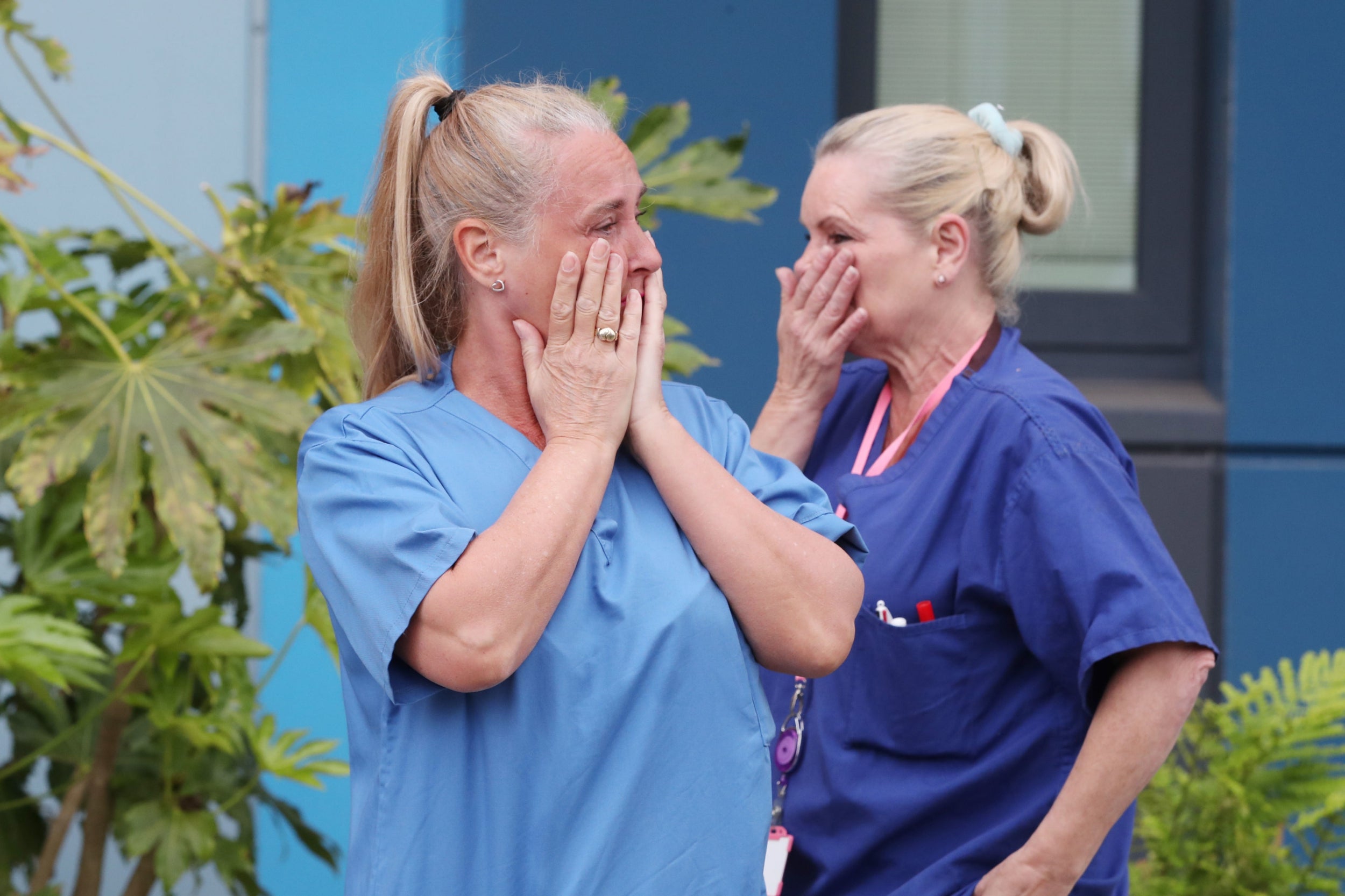
1/30
Staff react outside Salford Royal Hospital in Manchester during a minute’s silence to pay tribute to the NHS staff and key workers who have died during the coronavirus outbreak
PA

2/30
Staff inside Camberwell bus depot in London, during a minute’s silence
PA
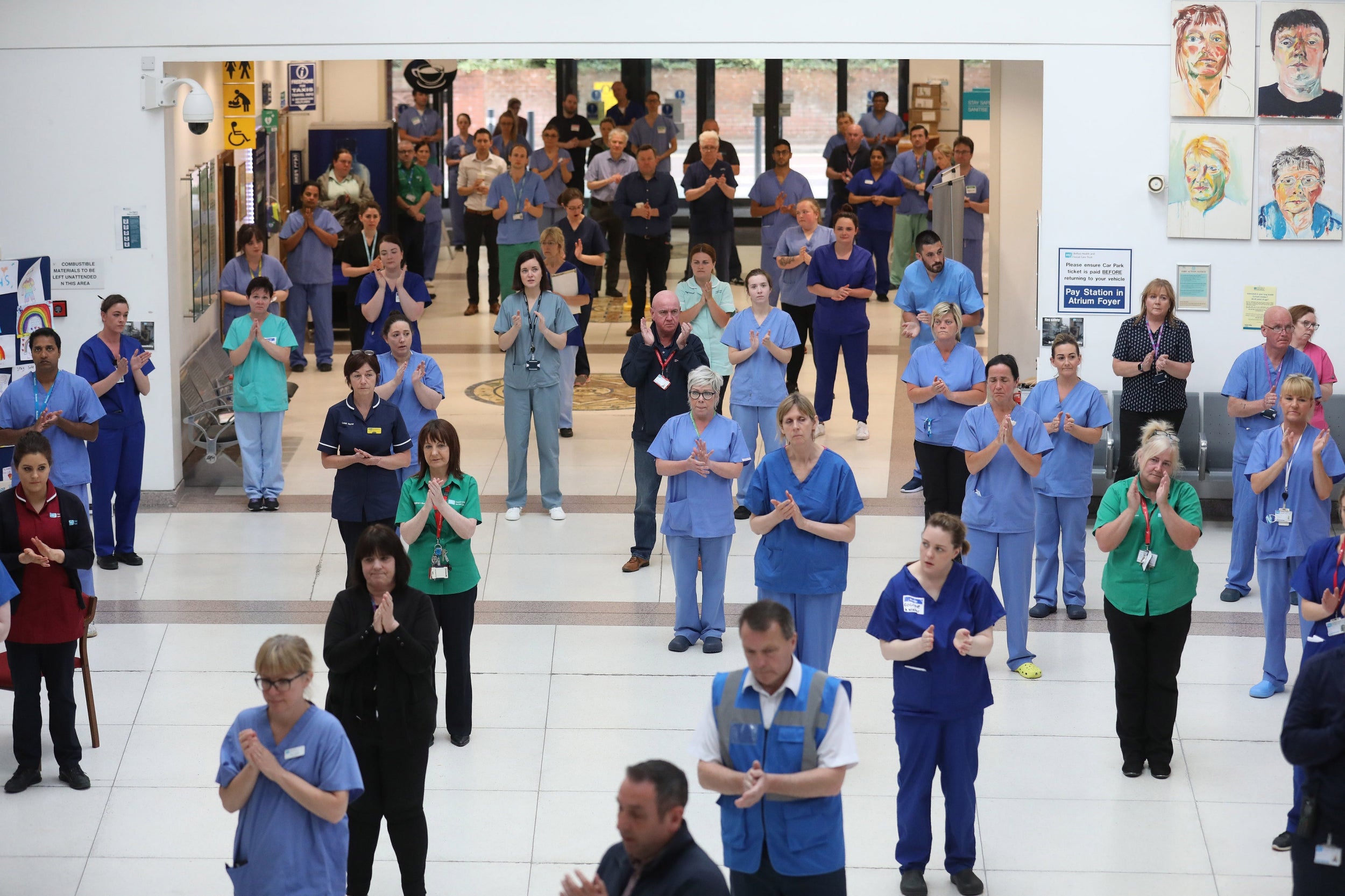
3/30
NHS staff at the Mater hospital in Belfast, during a minute’s silence to pay tribute to the NHS staff and key workers who have died during the coronavirus outbreak.
PA
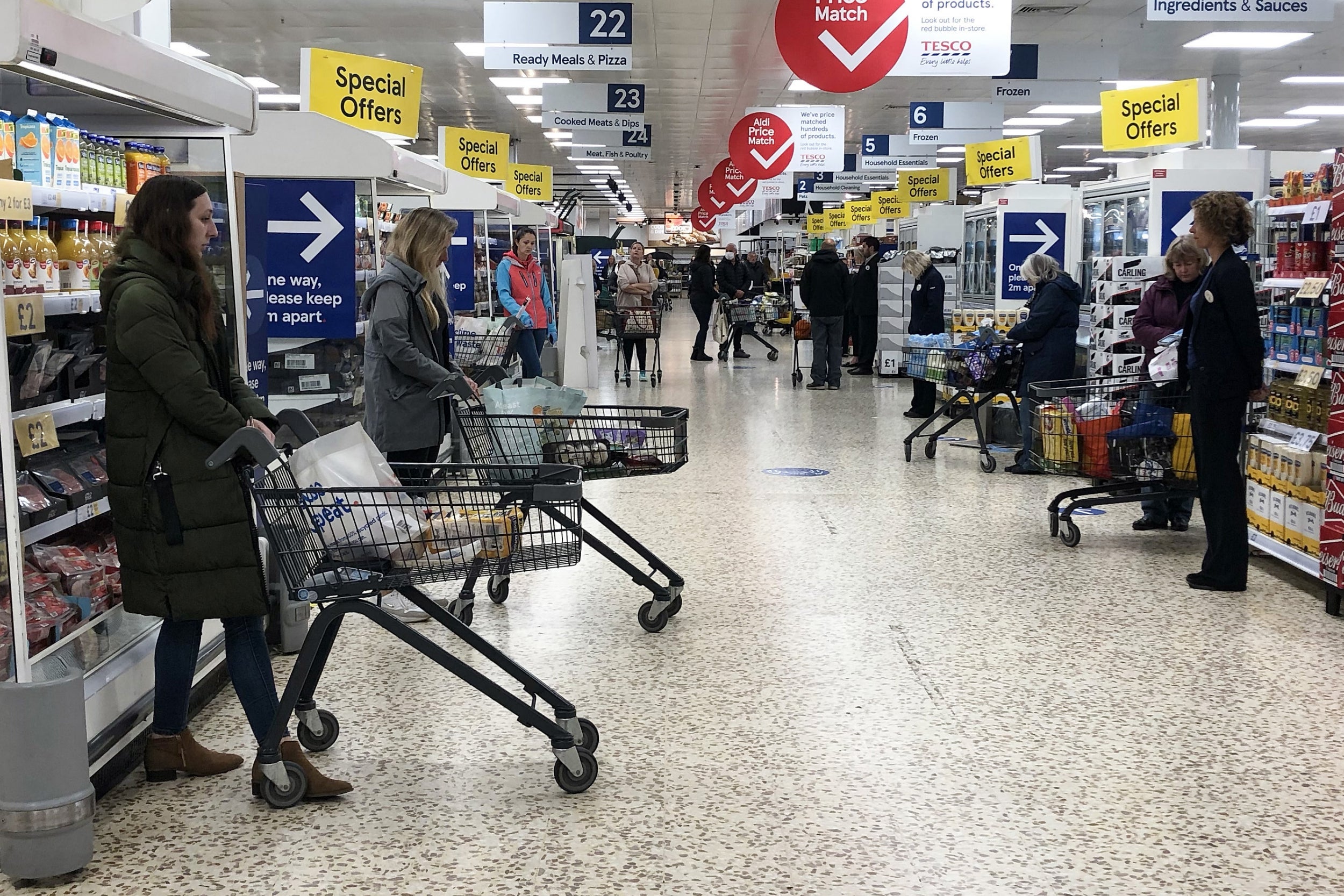
4/30
Shoppers observe a minute’s silence in Tescos in Shoreham
Getty
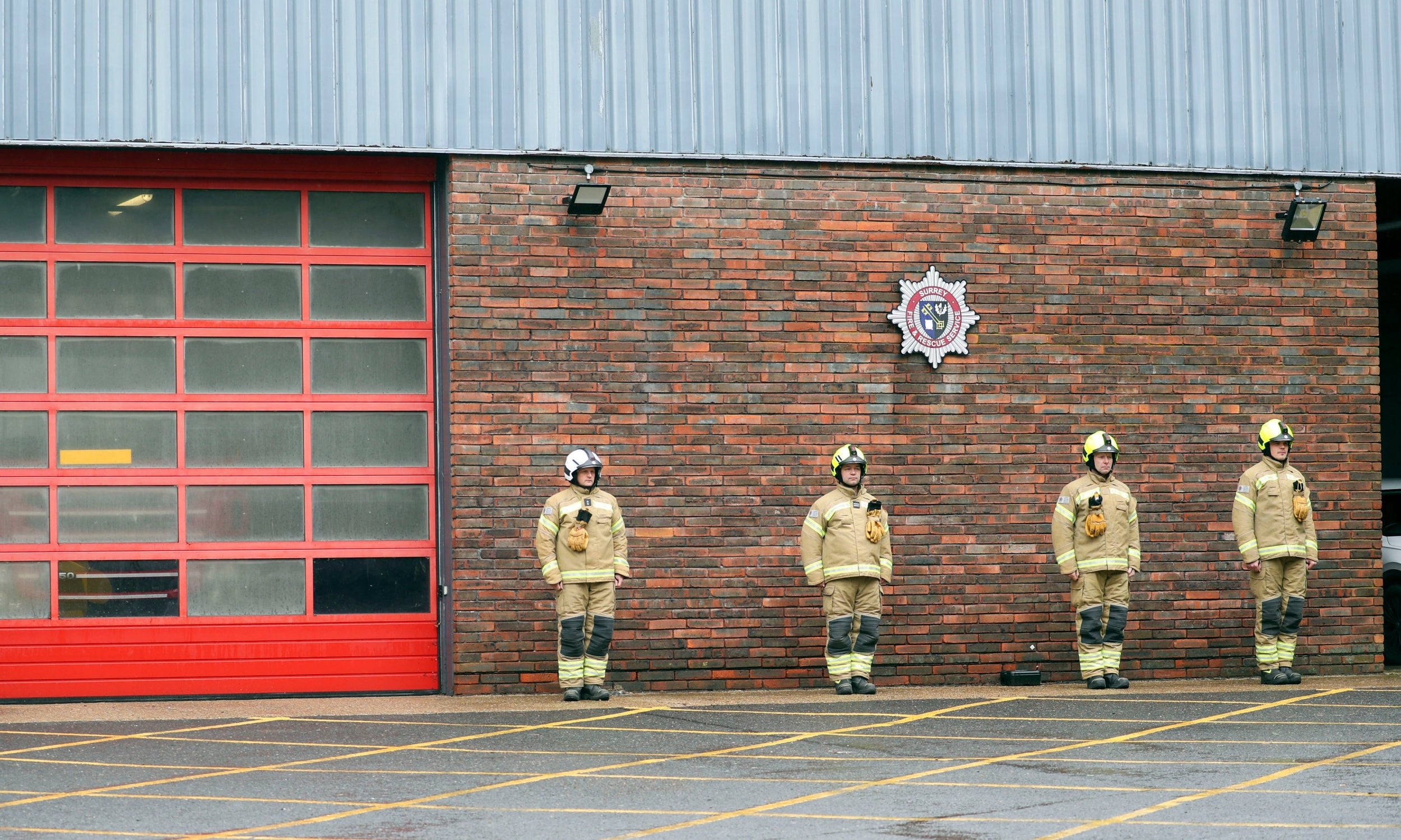
5/30
Firefighters outside Godstone fire station
PA
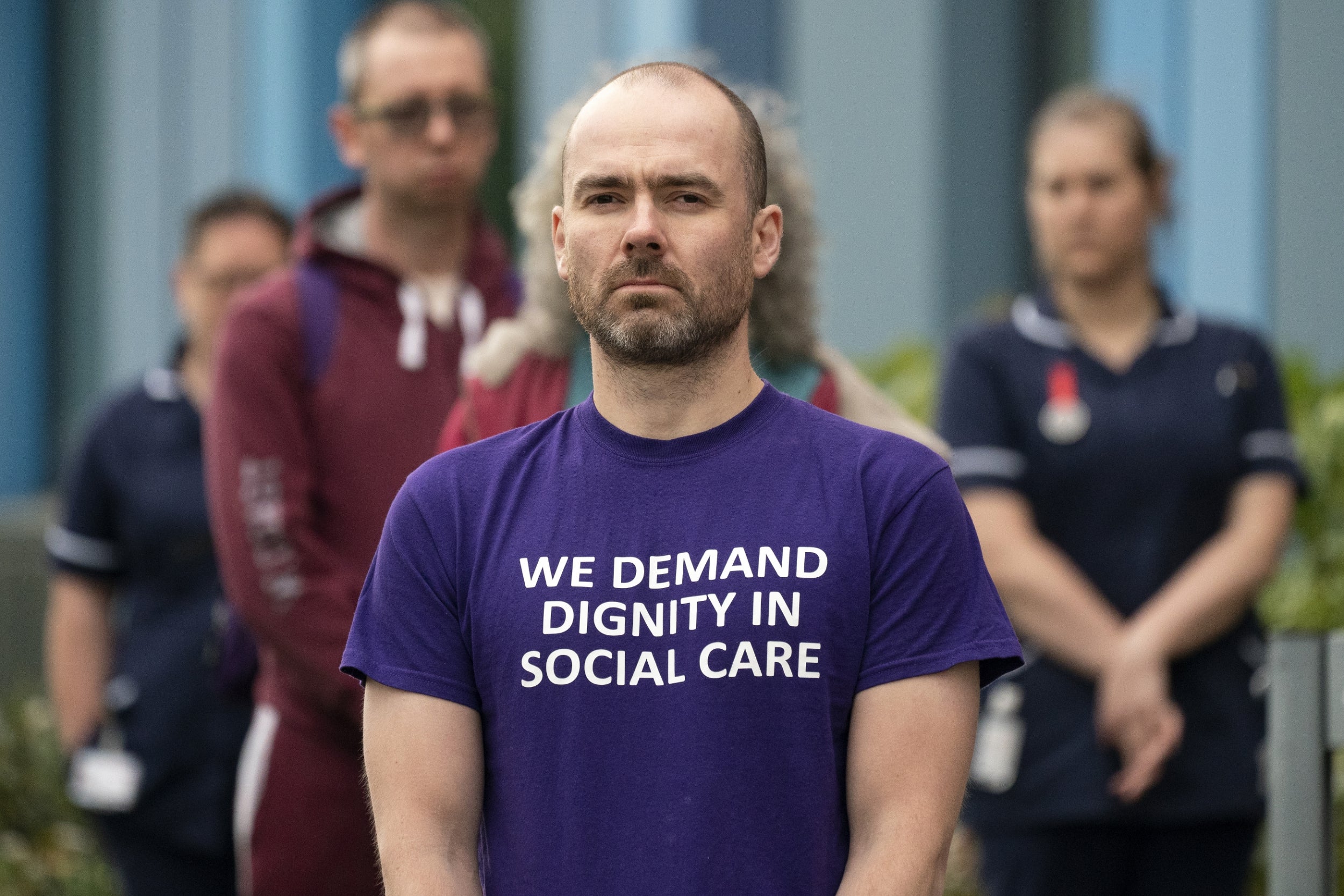
6/30 Salford Royal Hospital
Getty
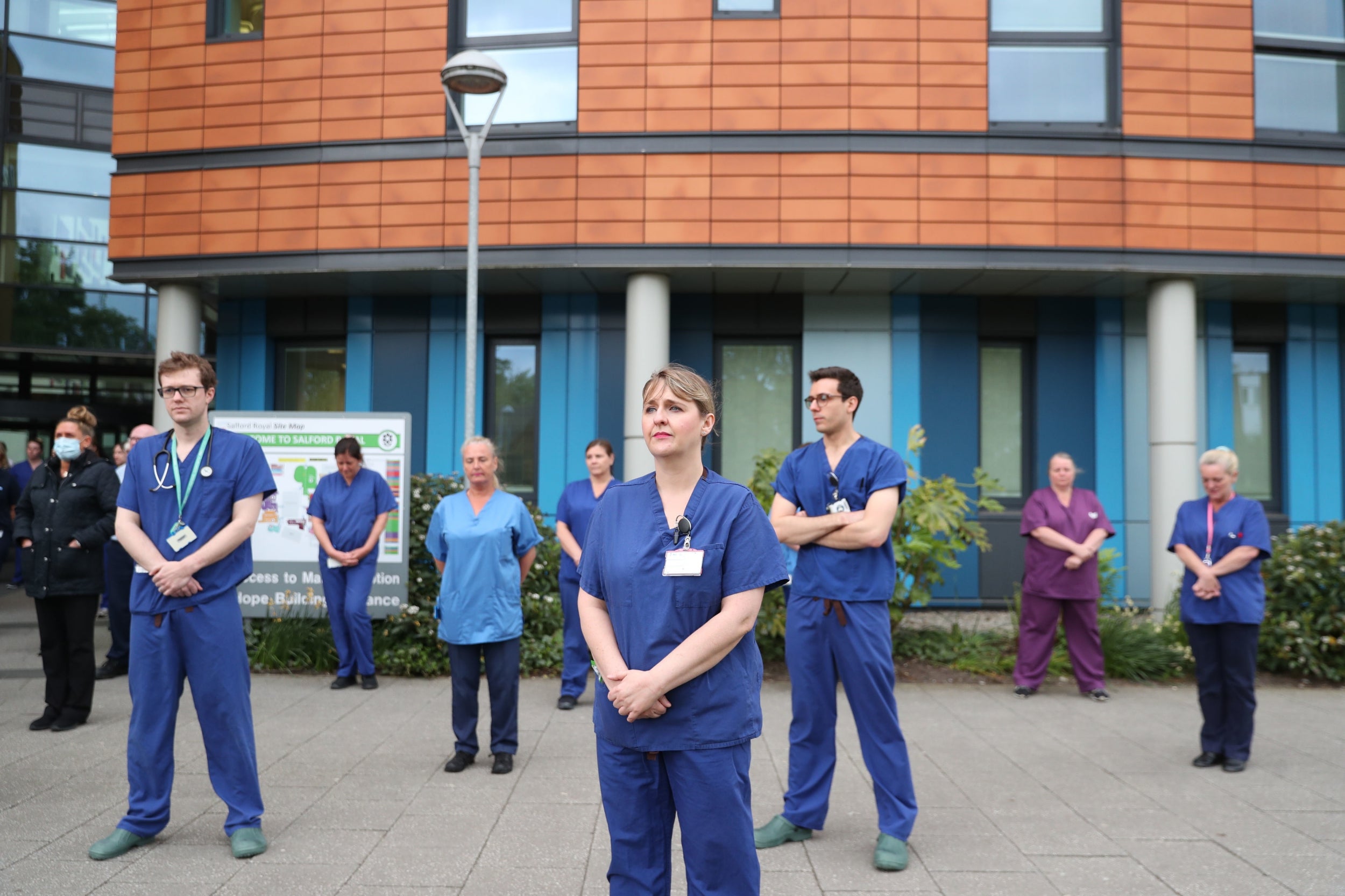
7/30 Salford Royal Hospital
PA
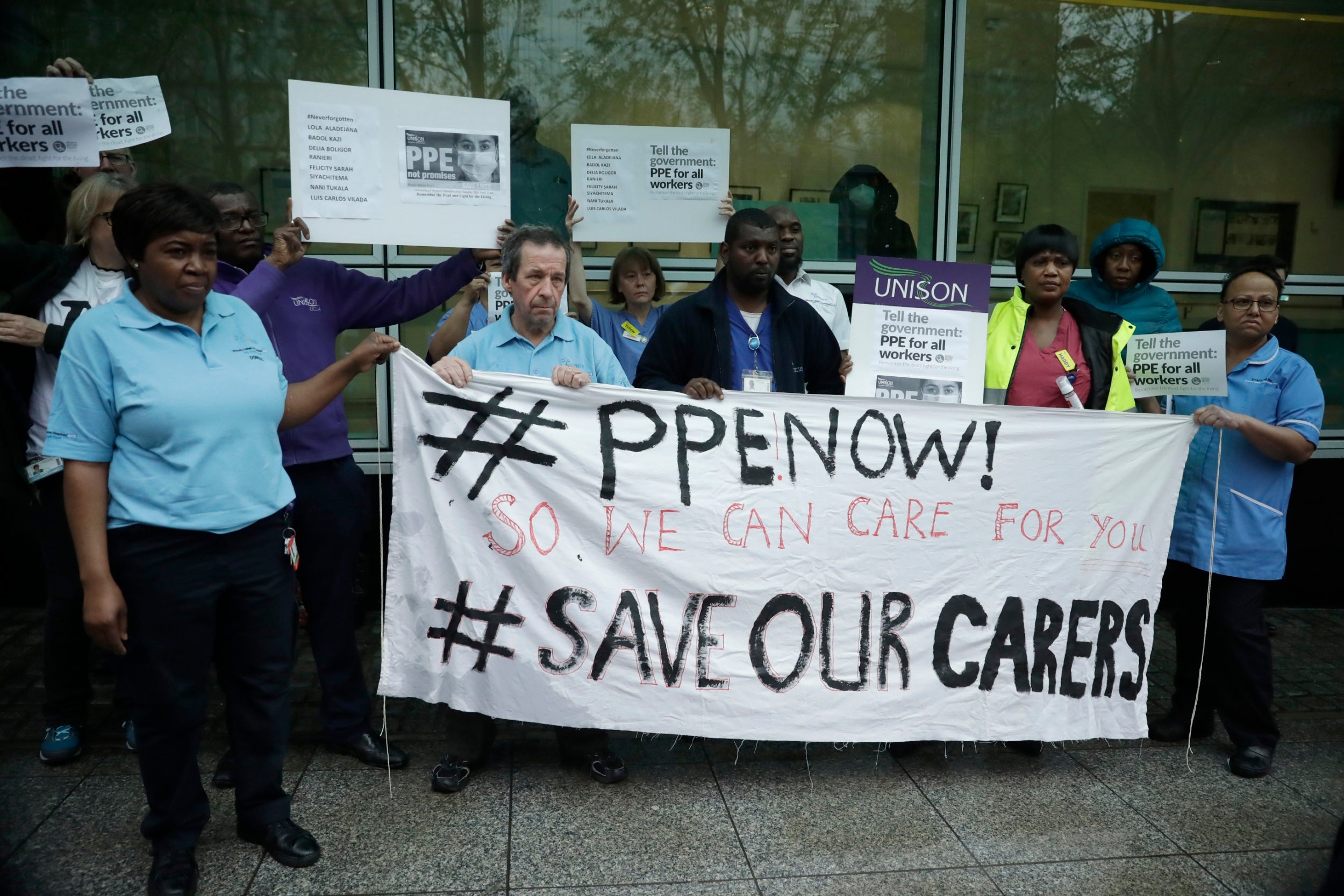
8/30
Hospital workers take part in a protest calling on the British government to provide PPE across Britain for all workers in care, the NHS and other vital public services after a nationwide minute’s silence at University College Hospital in London
AP
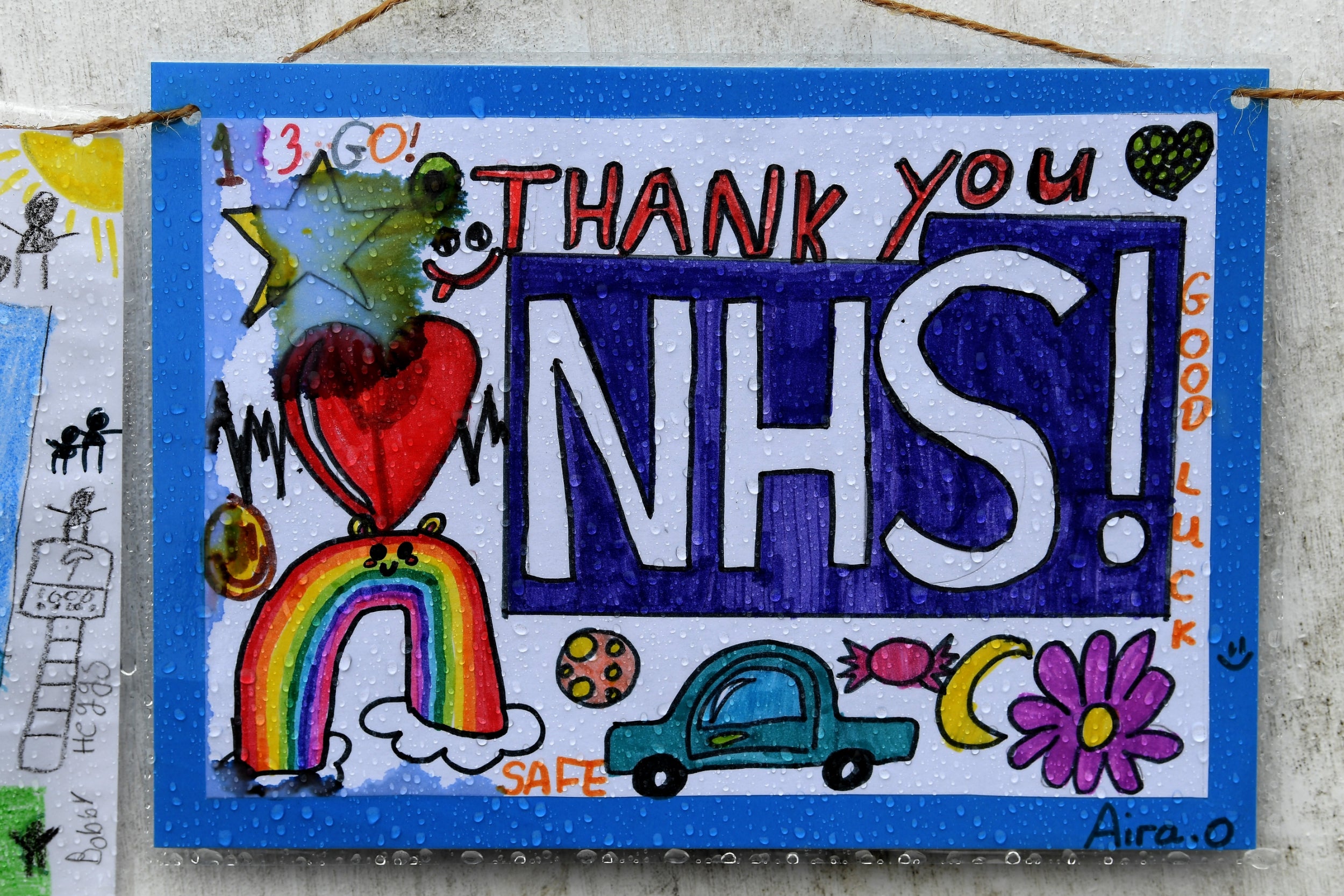
9/30
A school children’s poster hanging outside Glenfield Hospital during a minute’s silence
Getty
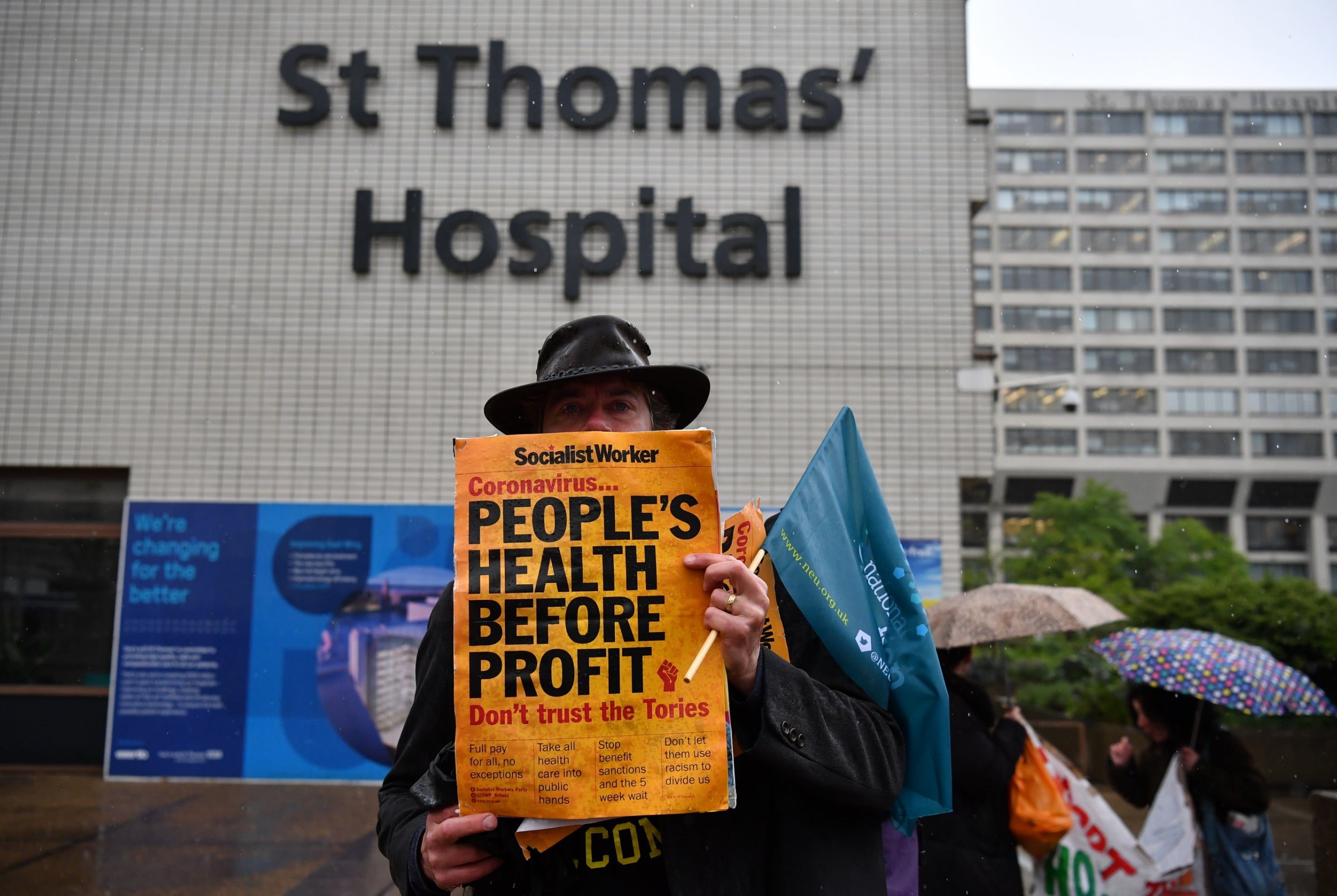
10/30
A man holds a placard that reads “People’s health before profit” outside St Thomas hospital
Getty
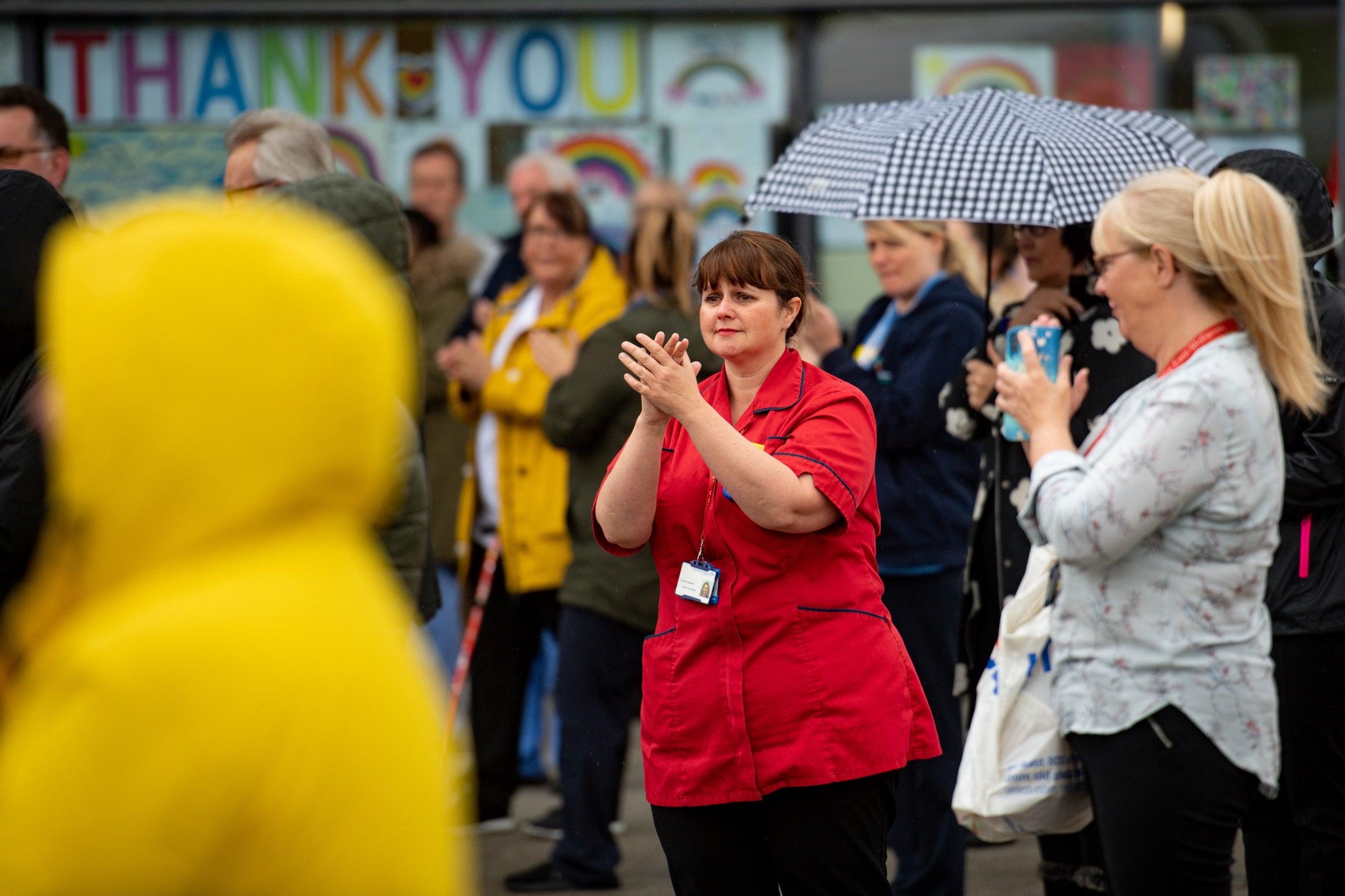
11/30
Staff members applaud outside the Royal Derby Hospital, following a minute’s silence
PA
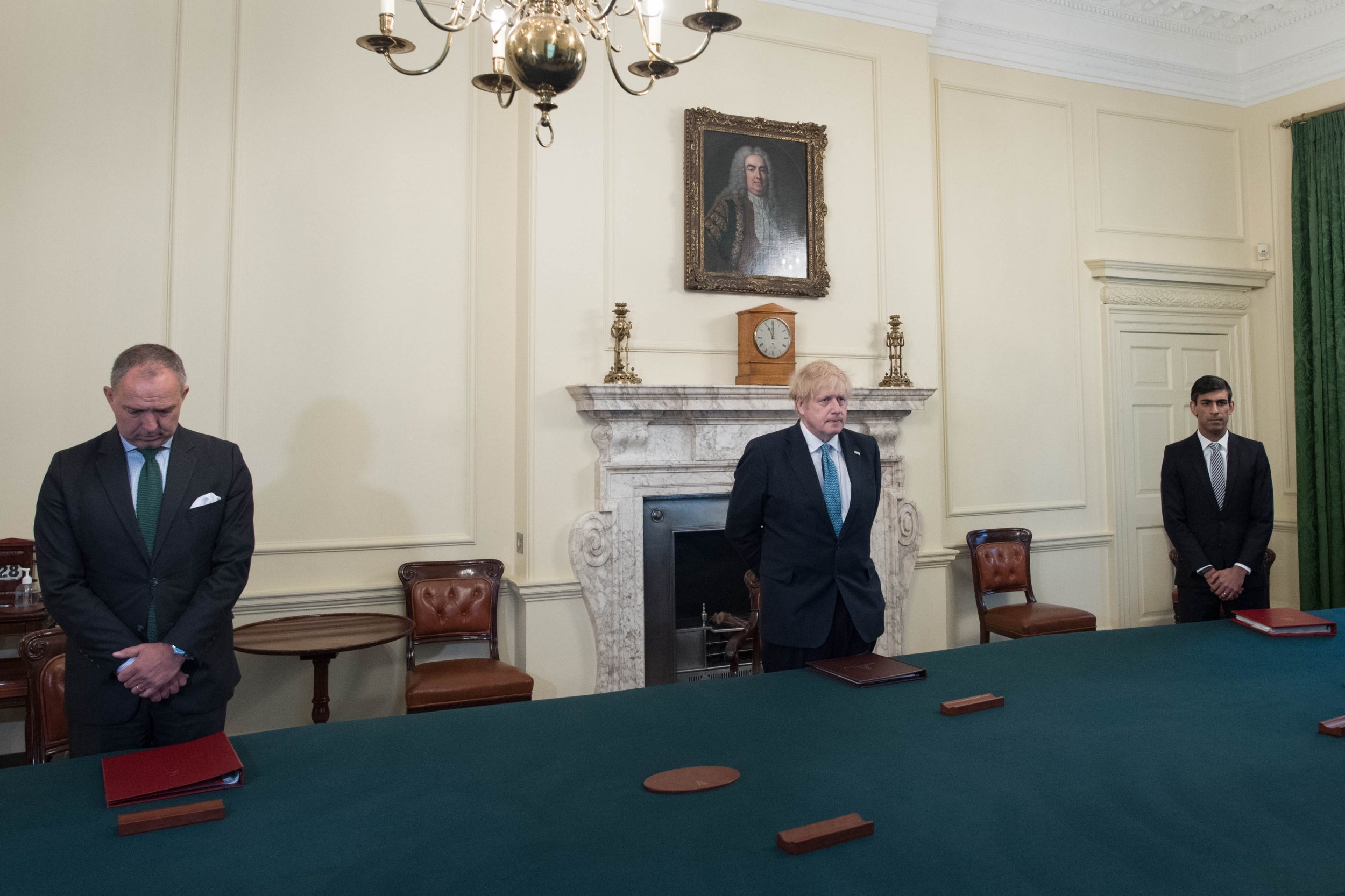
12/30
Cabinet Secretary Mark Sedwill, Prime minister Boris Johnson and Chancellor of the Exchequer Rishi Sunak, stand inside 10 Downing Street, London, to observe a minutes silence in tribute to the NHS staff and key workers who have died during the coronavirus outbreak
PA
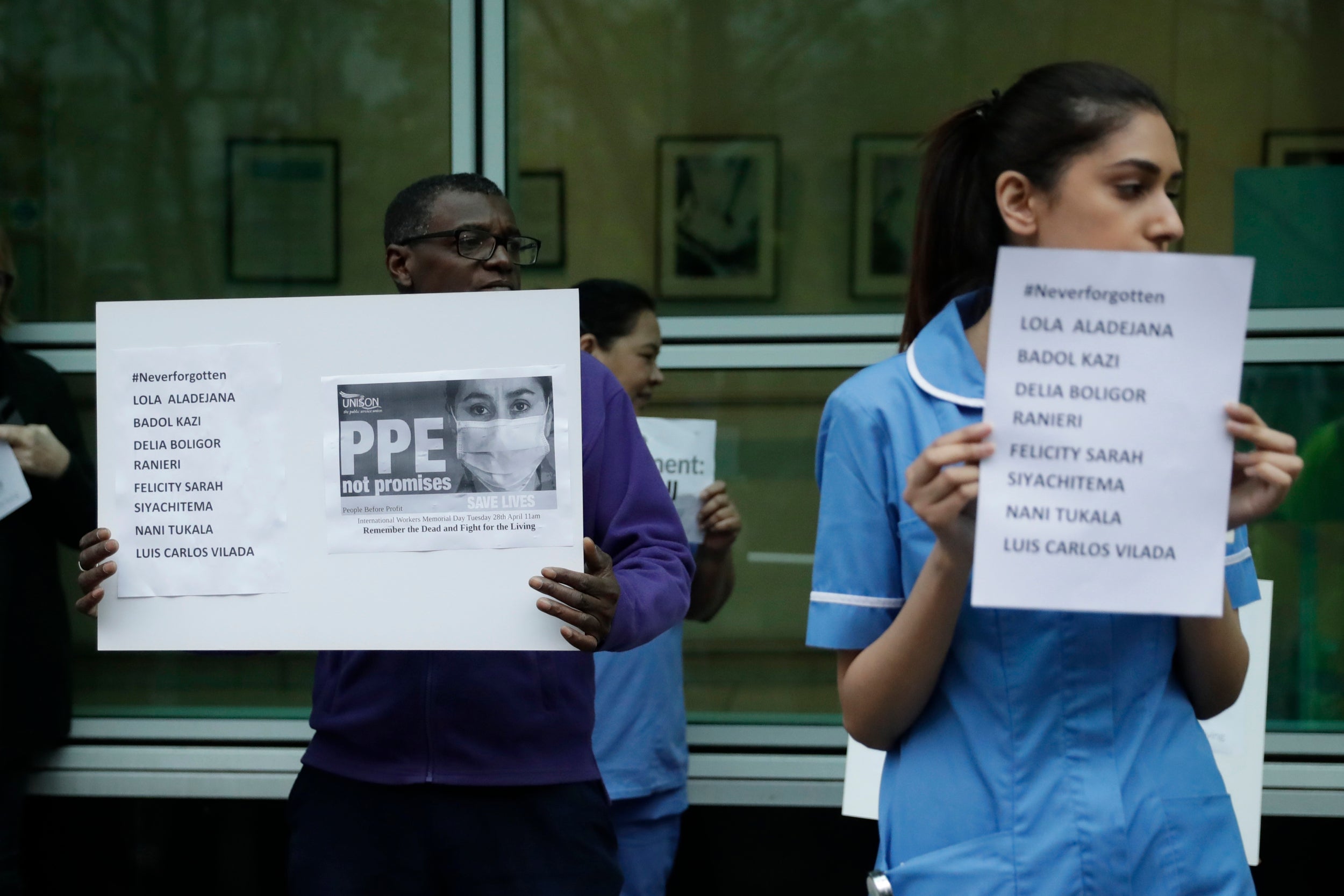
13/30 University College Hospital, London
Hospital workers hold placards with the names of their colleagues who have died from coronavirus as they take part in a protest calling on the British government to provide PPE
AP
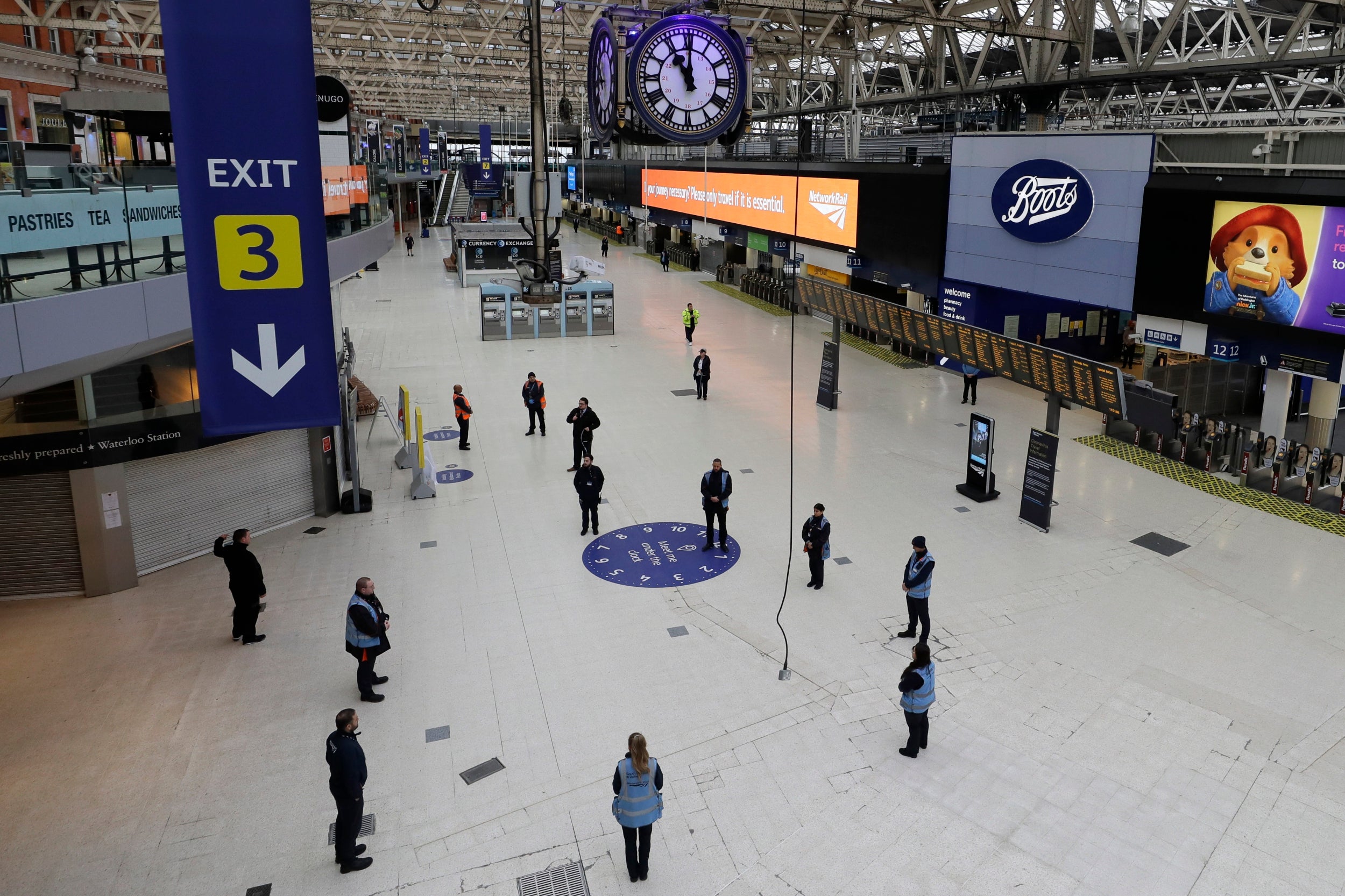
14/30
Staff at Waterloo Station in London, stand to observe a minute’s silence, to pay tribute to NHS and key workers who have died with coronavirus
AP
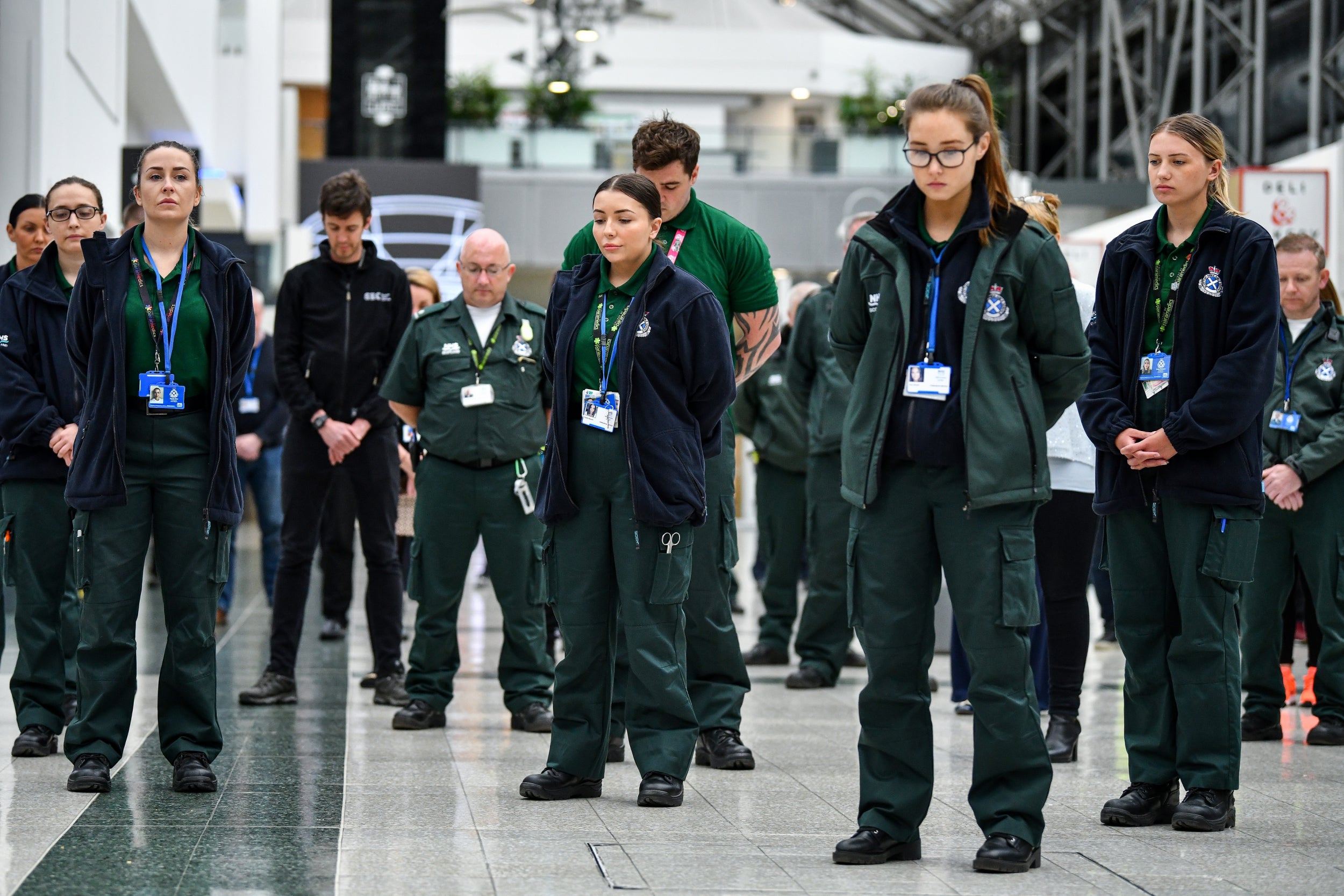
15/30
Medical staff at the Louisa Jordan hospital stand during a UK wide minutes silence to commemorate the key workers who have died with coronavirus in Glasgow
Getty
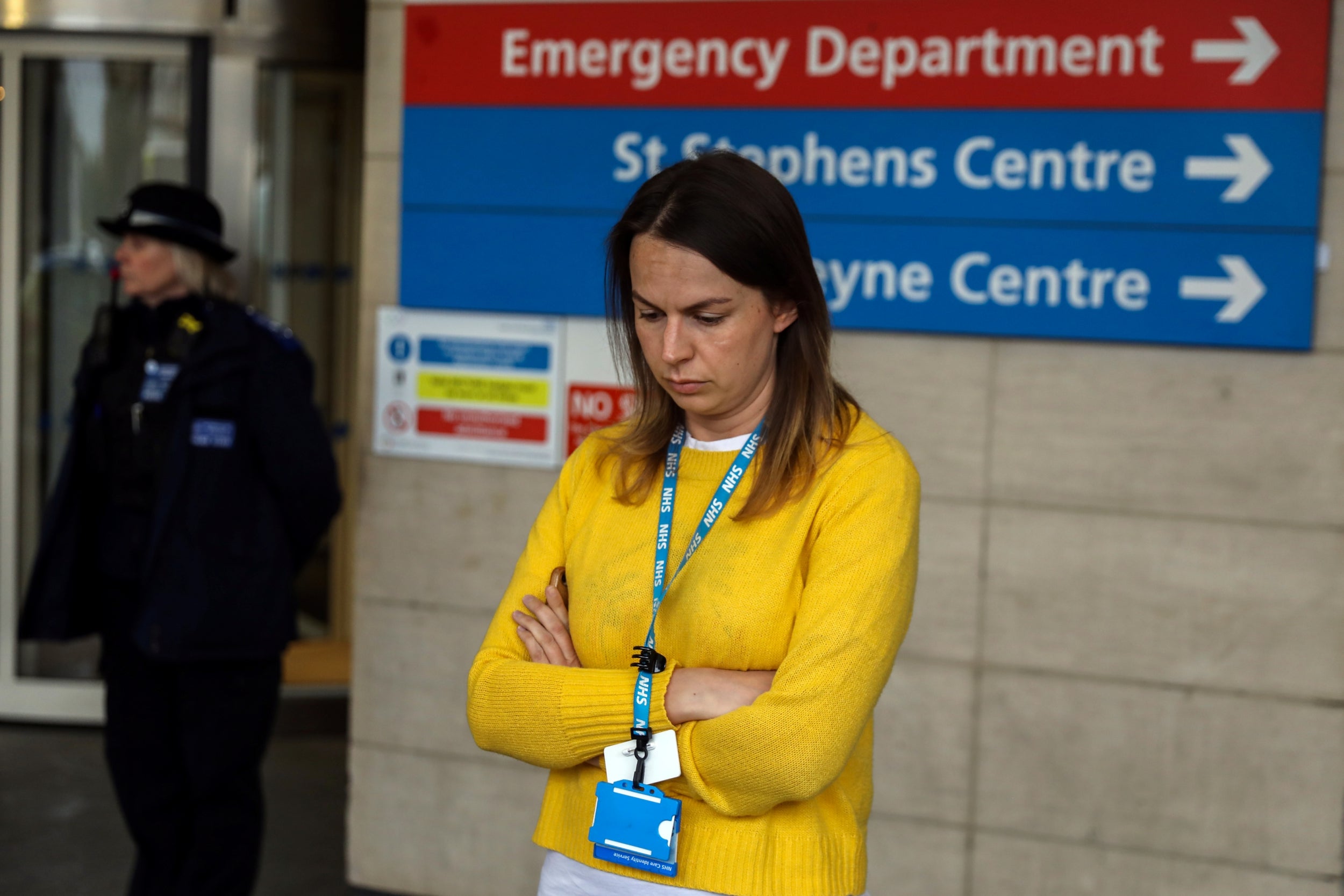
16/30 London
An NHS worker observes a minute’s silence at Chelsea and Westminster Hospital
Reuters
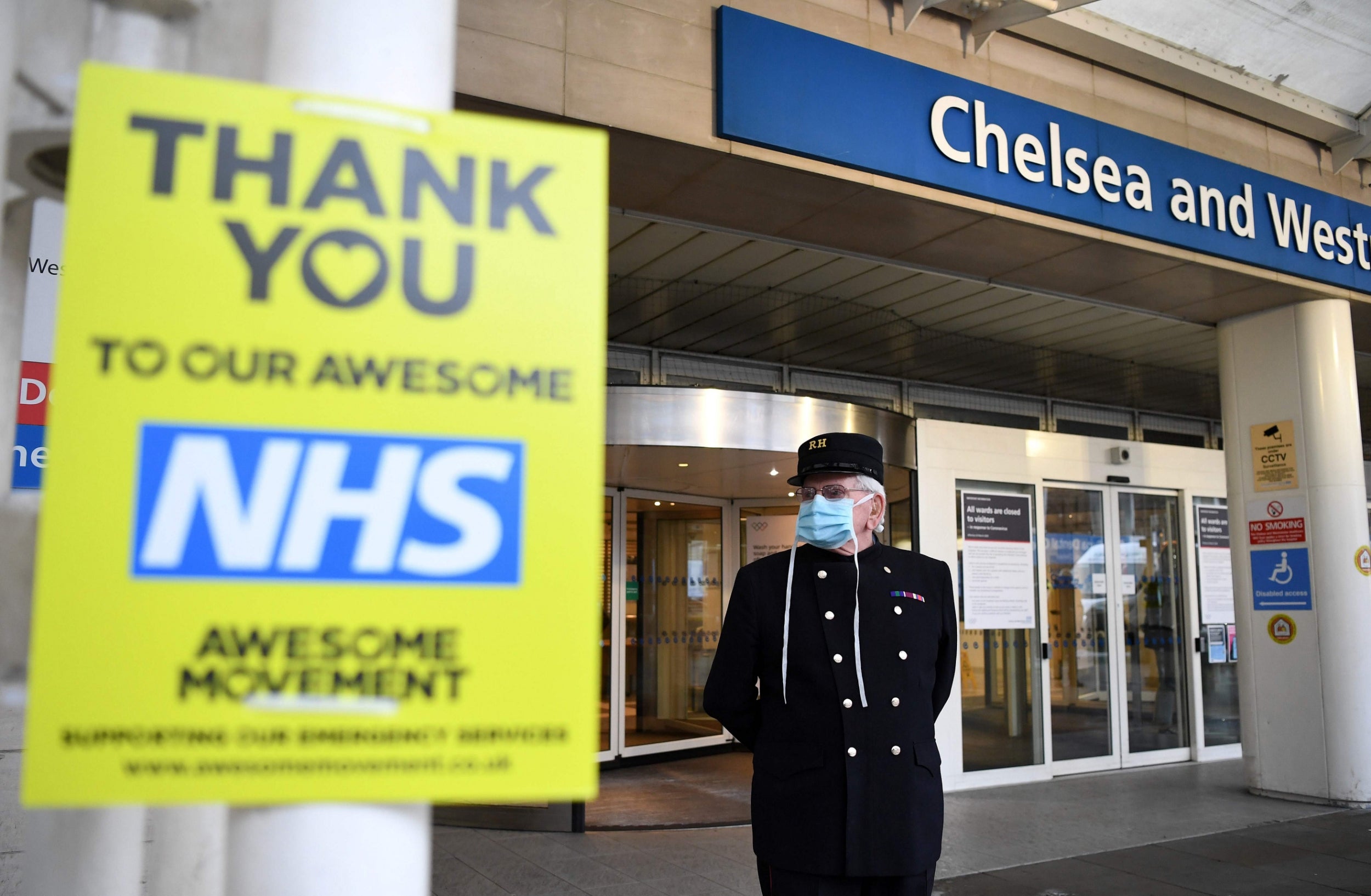
17/30 Chelsea and Westminster Hospital in London
AFP via Getty
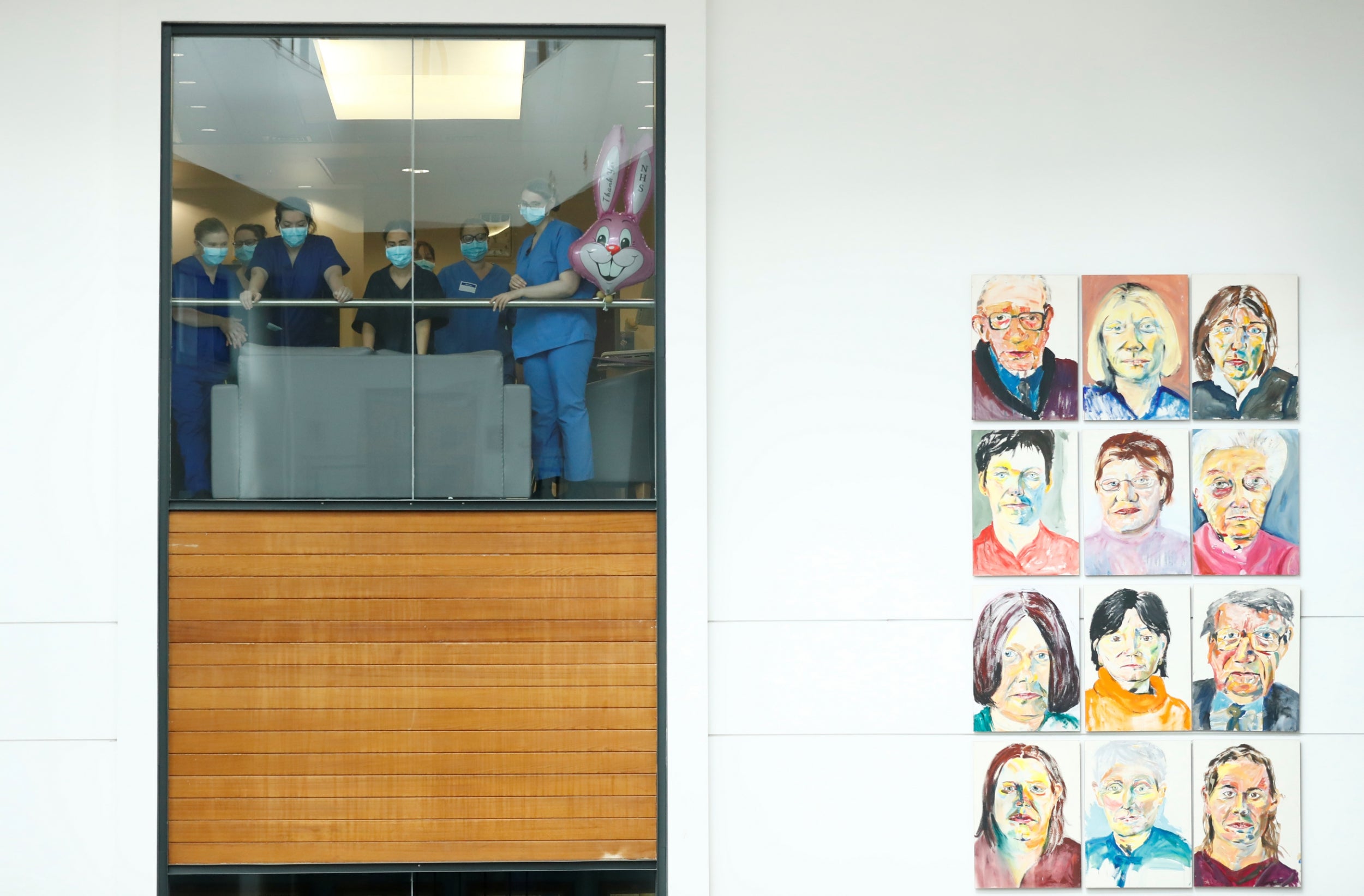
18/30 Belfast, Northern Ireland
NHS staff observe a minutes silence at Mater Infirmorum Hospital
Reuters
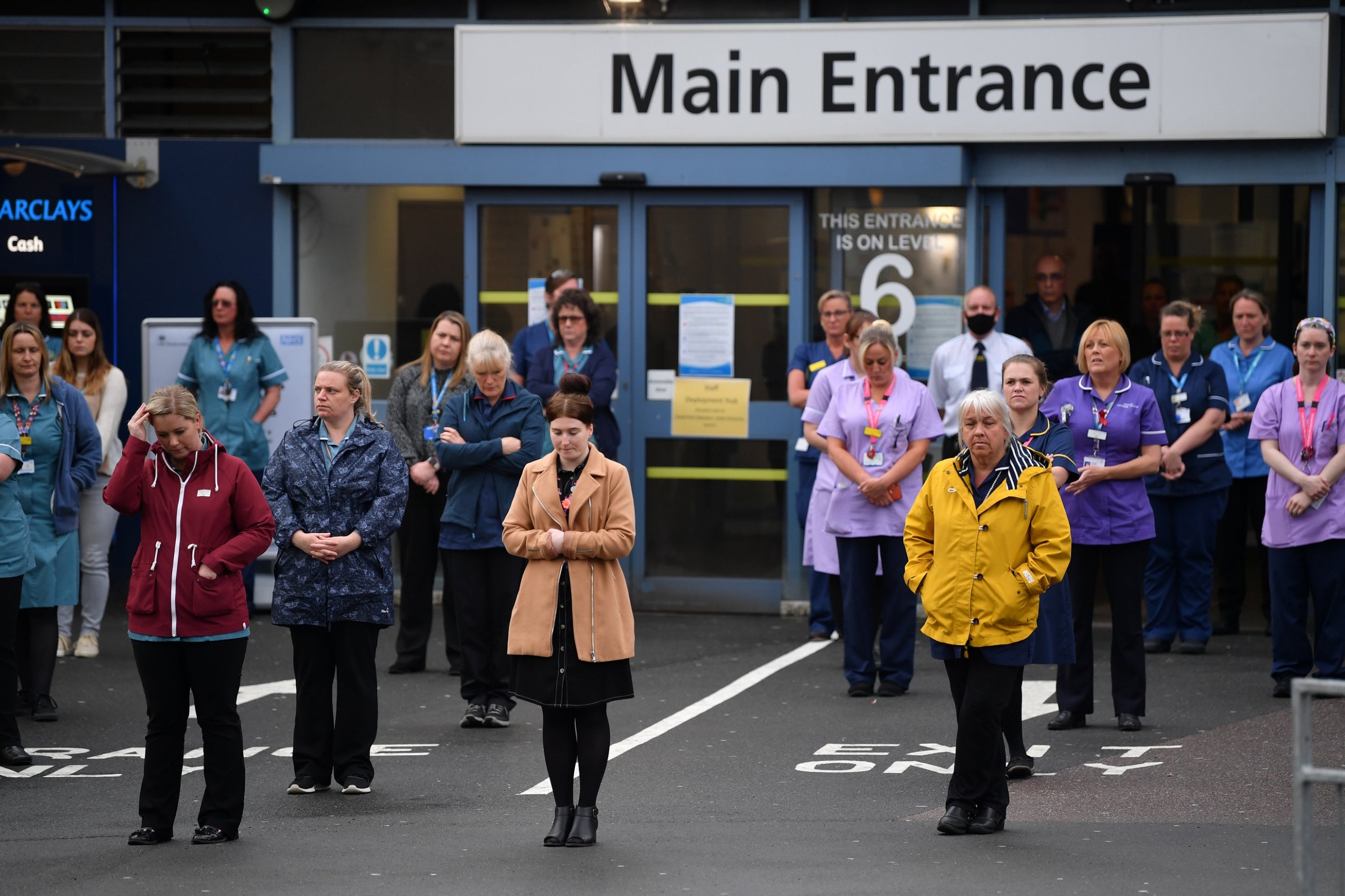
19/30 Plymouth
NHS workers hold a minute’s silence outside the main entrance of Derriford Hospital
Getty
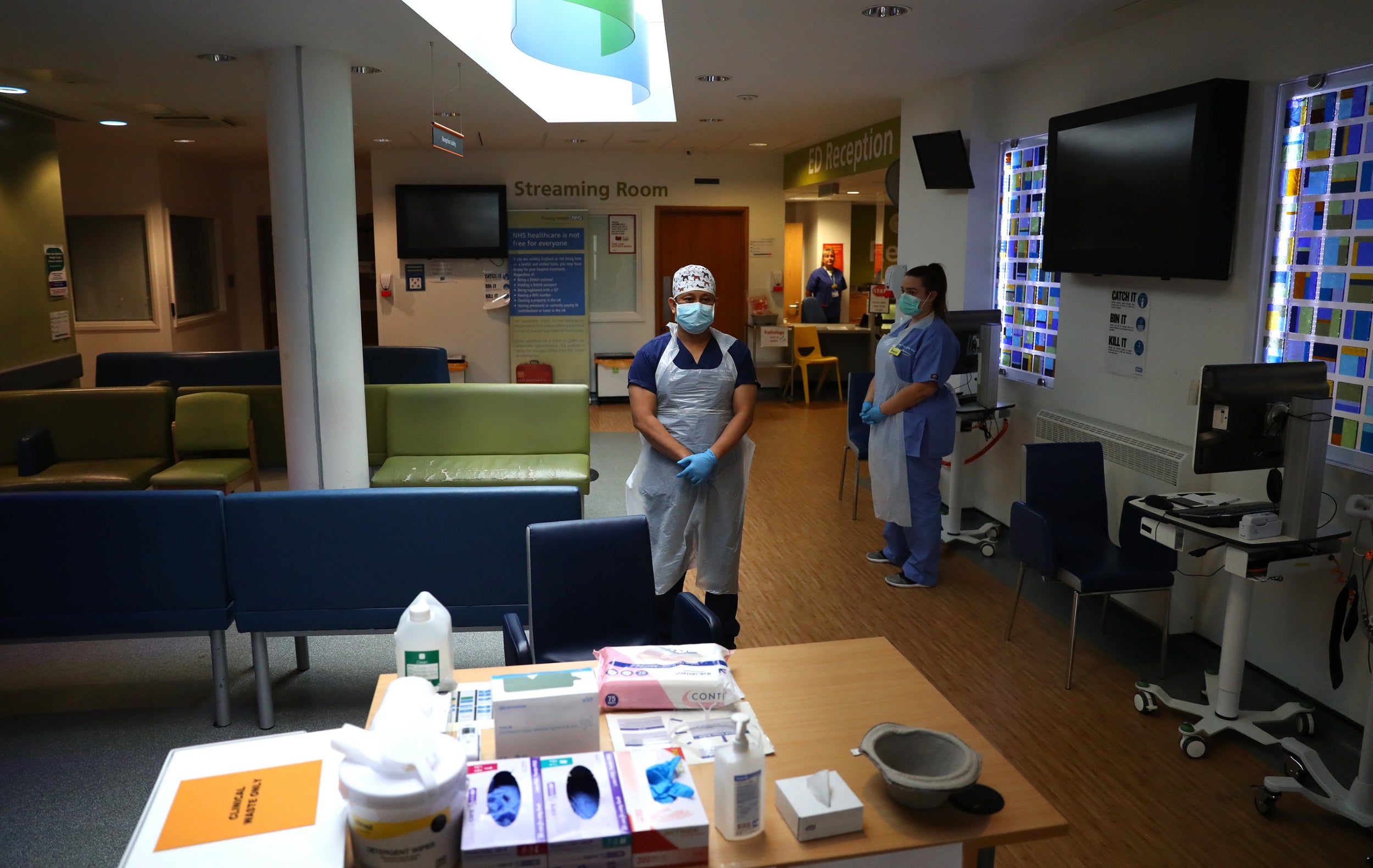
20/30
NHS Frimley Park Hospital staff at the A&E department observe a minute’s silence
Getty
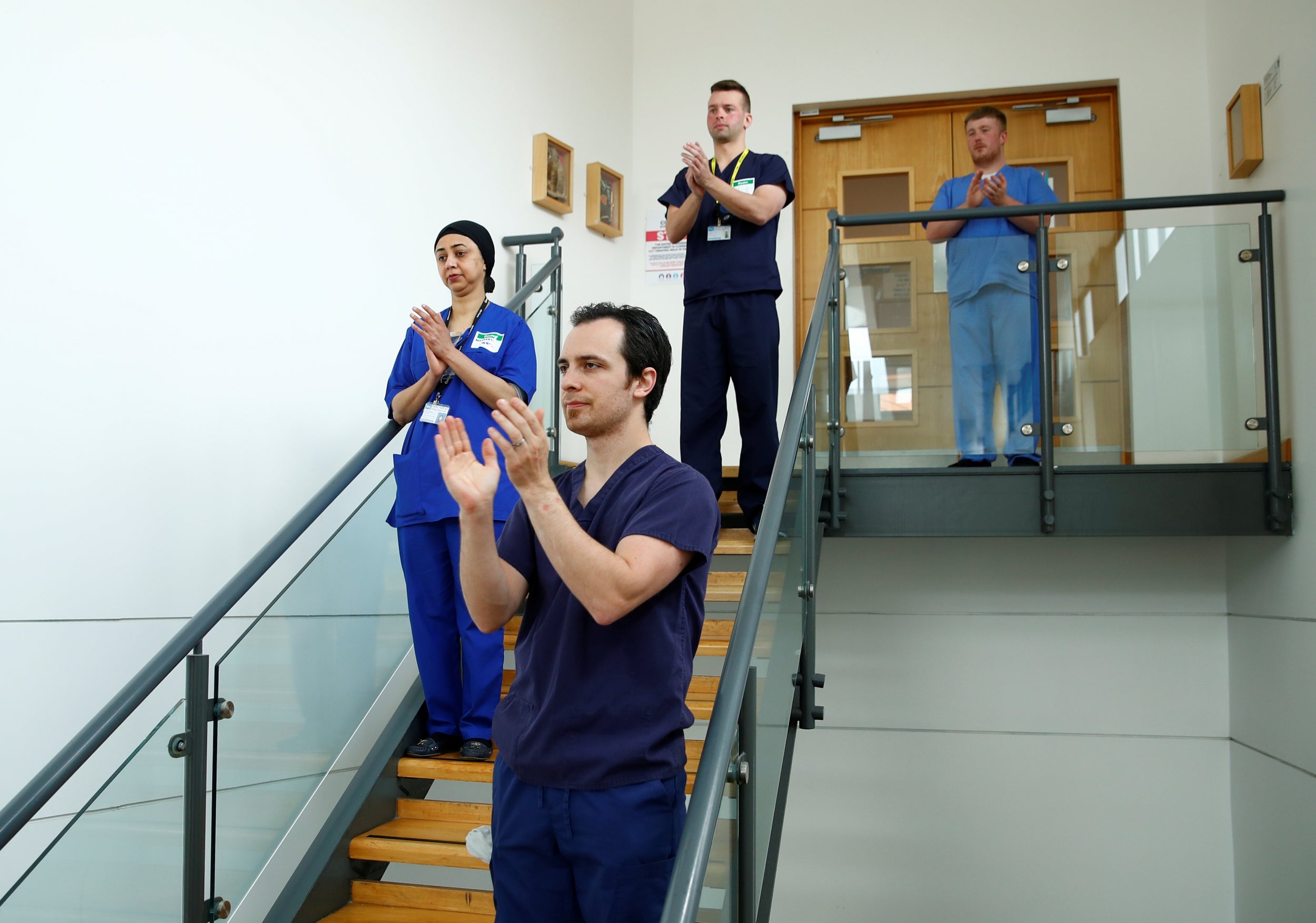
21/30 Mater Infirmorum Hospital
People applaud after a minutes silence in honour of key workers
Reuters
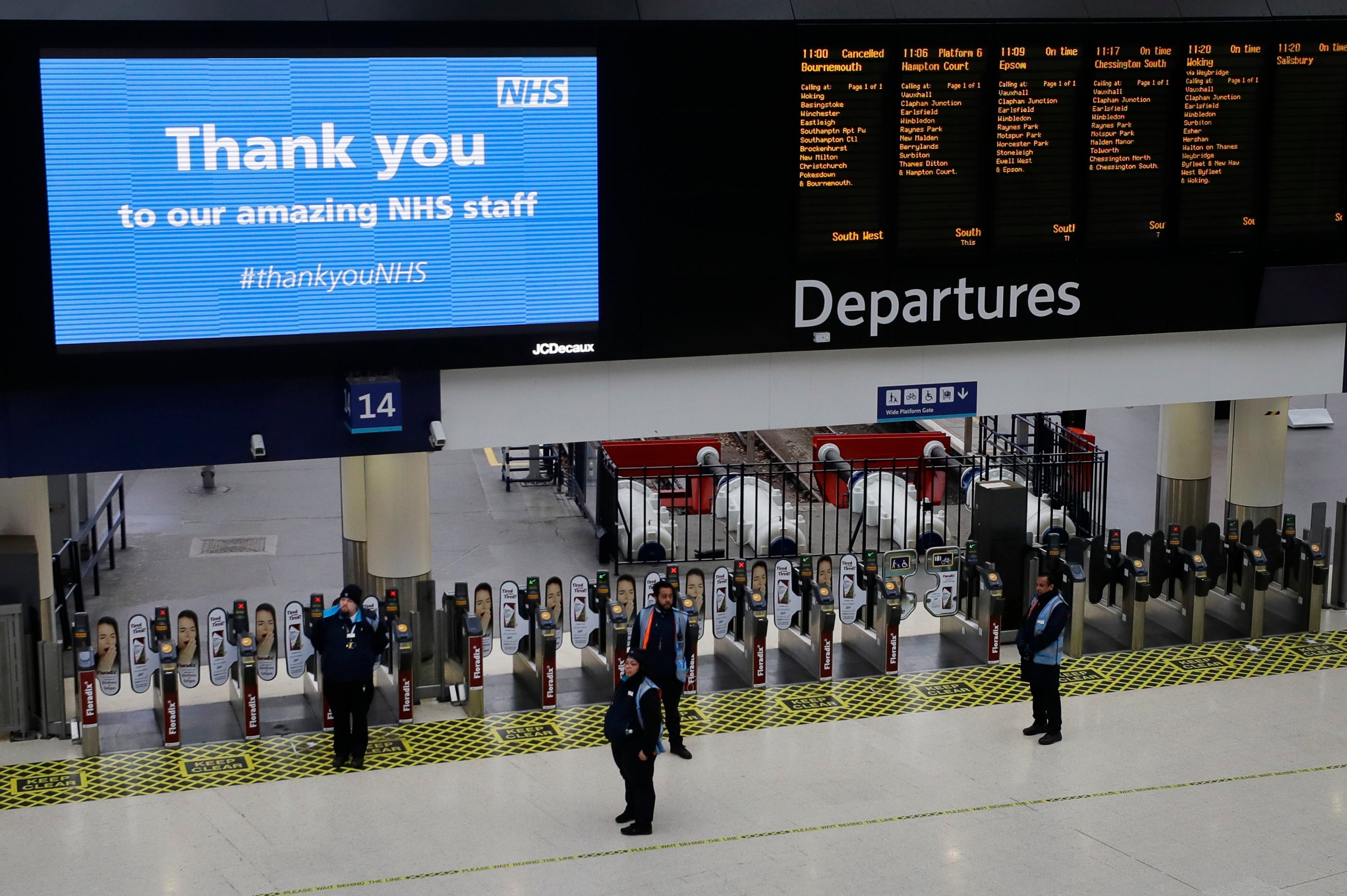
22/30 Waterloo Station, London
AP

23/30
Wreaths laid outside Sheffield town hall
PA

24/30
A group of trade unionists and supporters standing outside Sheffield town hall
PA
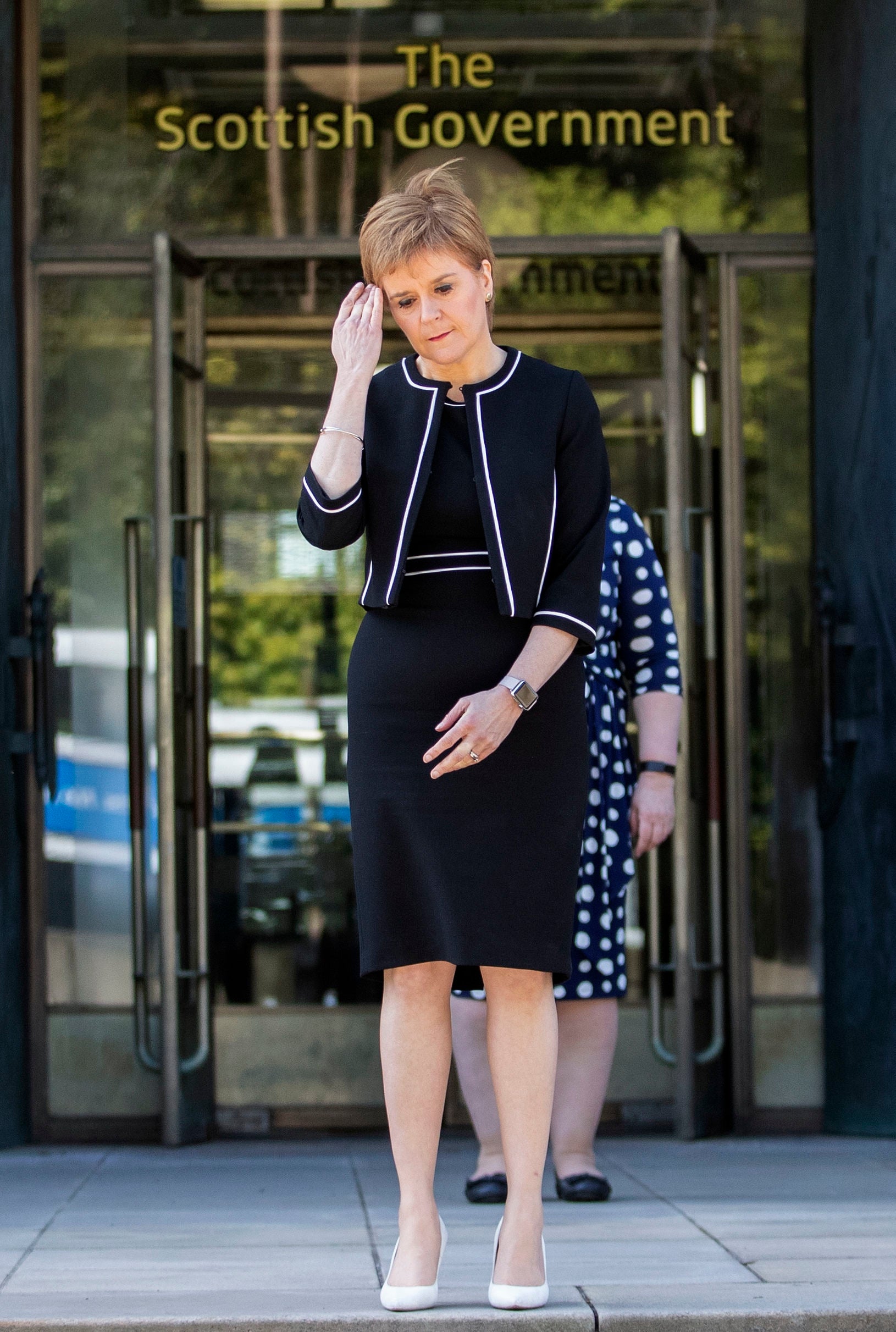
25/30
First Minister Nicola Sturgeon stands outside St Andrew’s House in Edinburgh to observe a minute’s silence in tribute to the NHS staff and key workers who have died during the coronavirus outbreak
PA
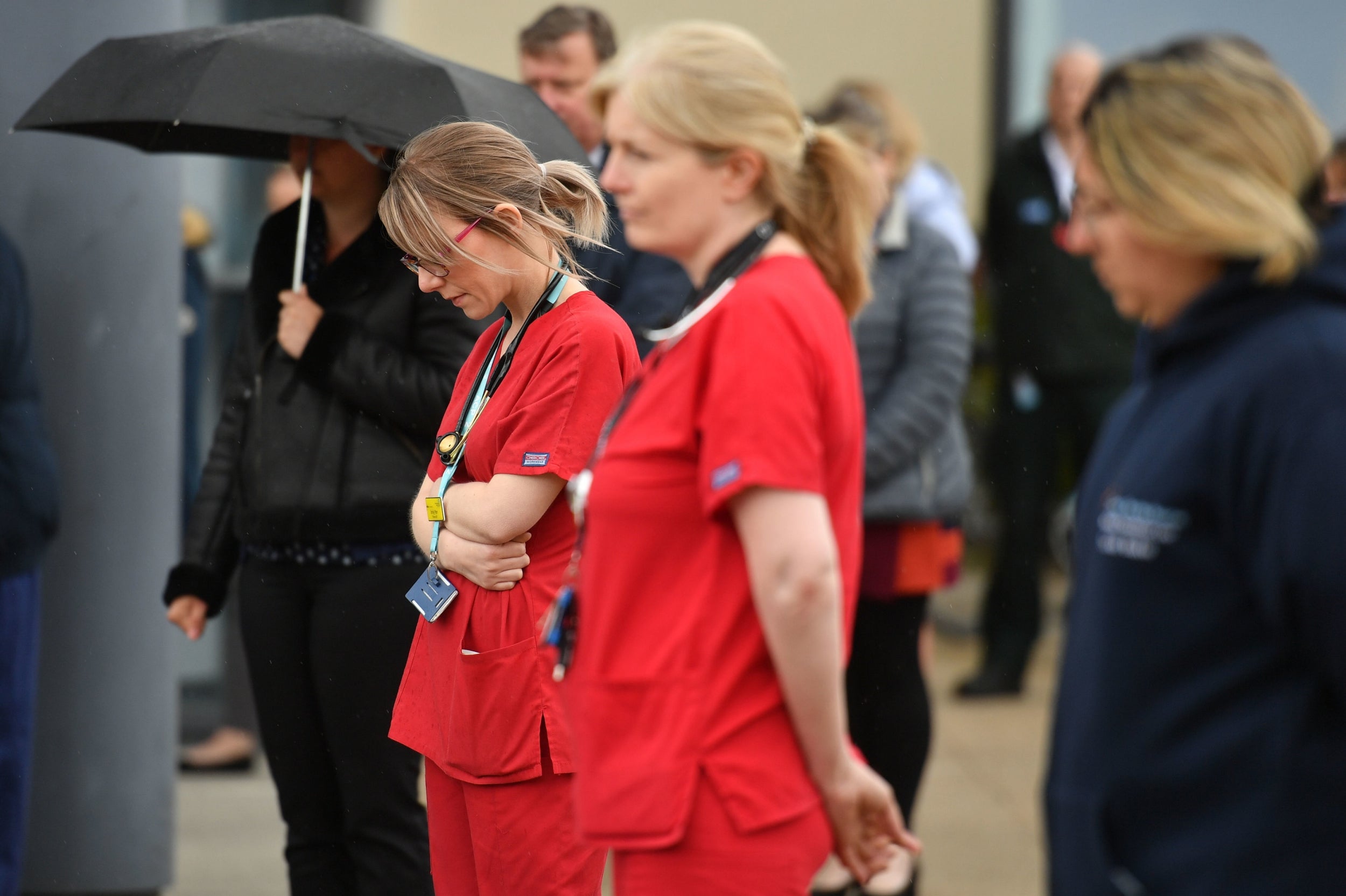
26/30
Staff stand outside the Royal Derby Hospital, during a minutes silence
PA
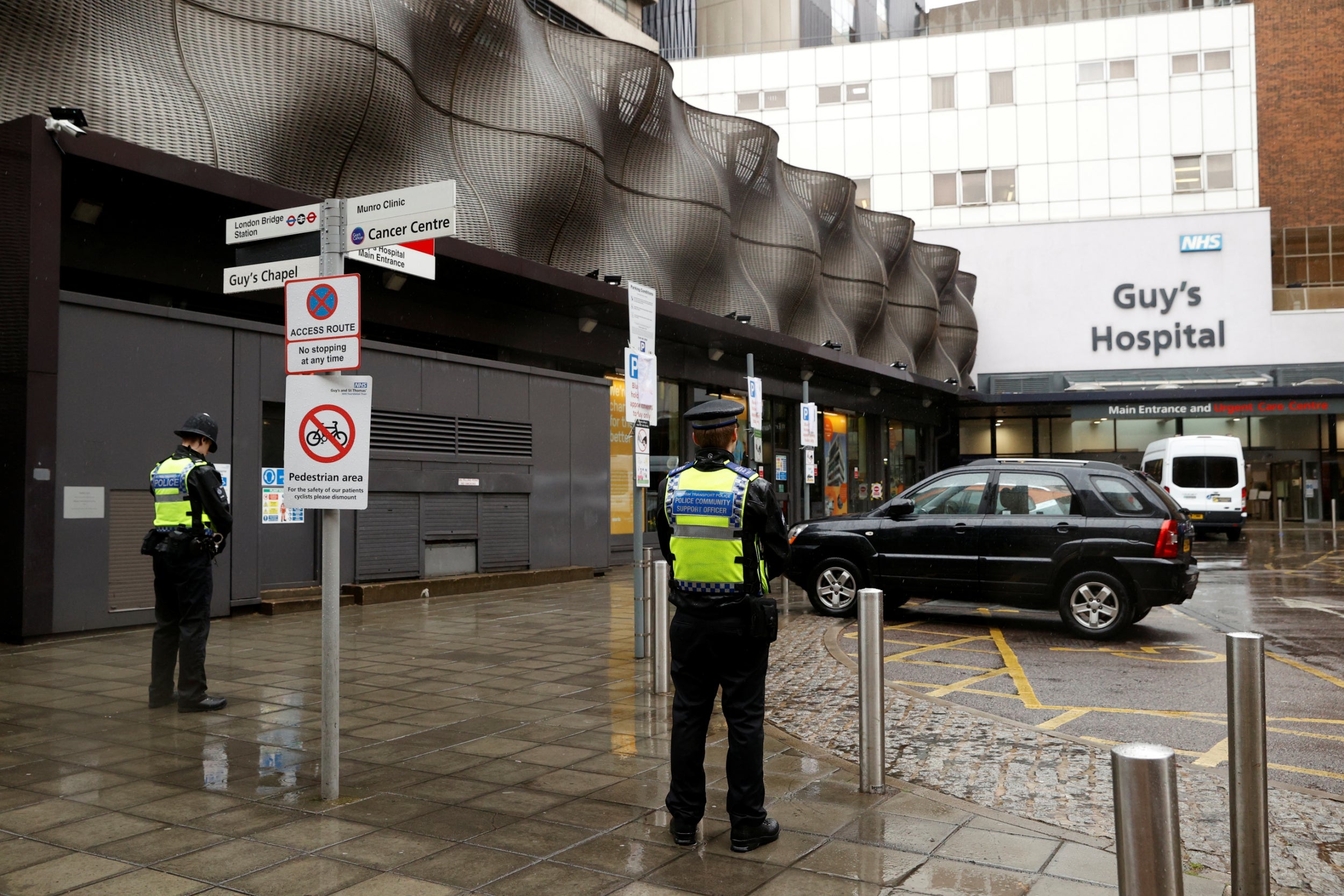
27/30 London
Police officers observe a minutes silence at Guy’s Hospital
Reuters
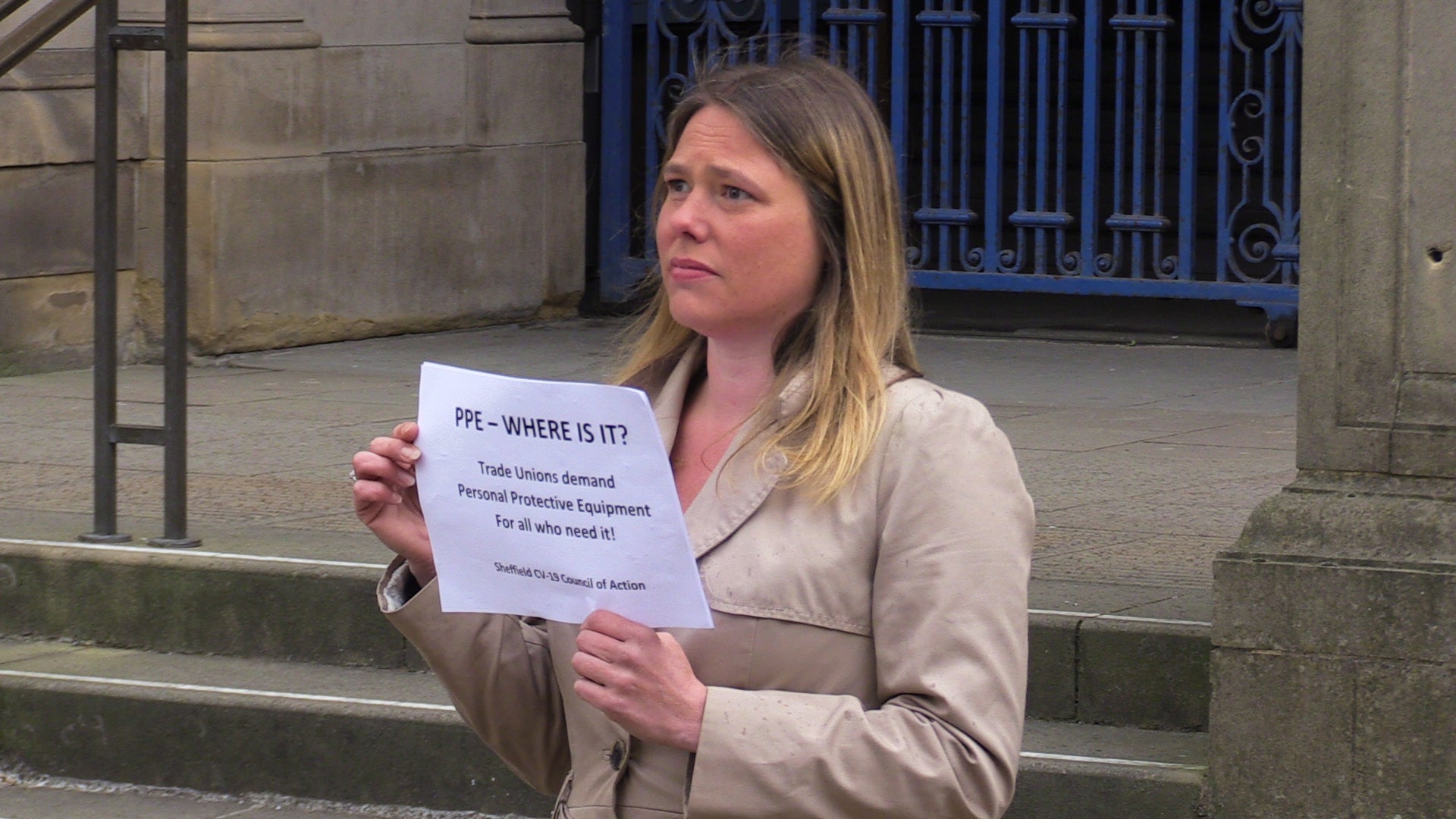
28/30
A woman standing outside Sheffield town hall
PA
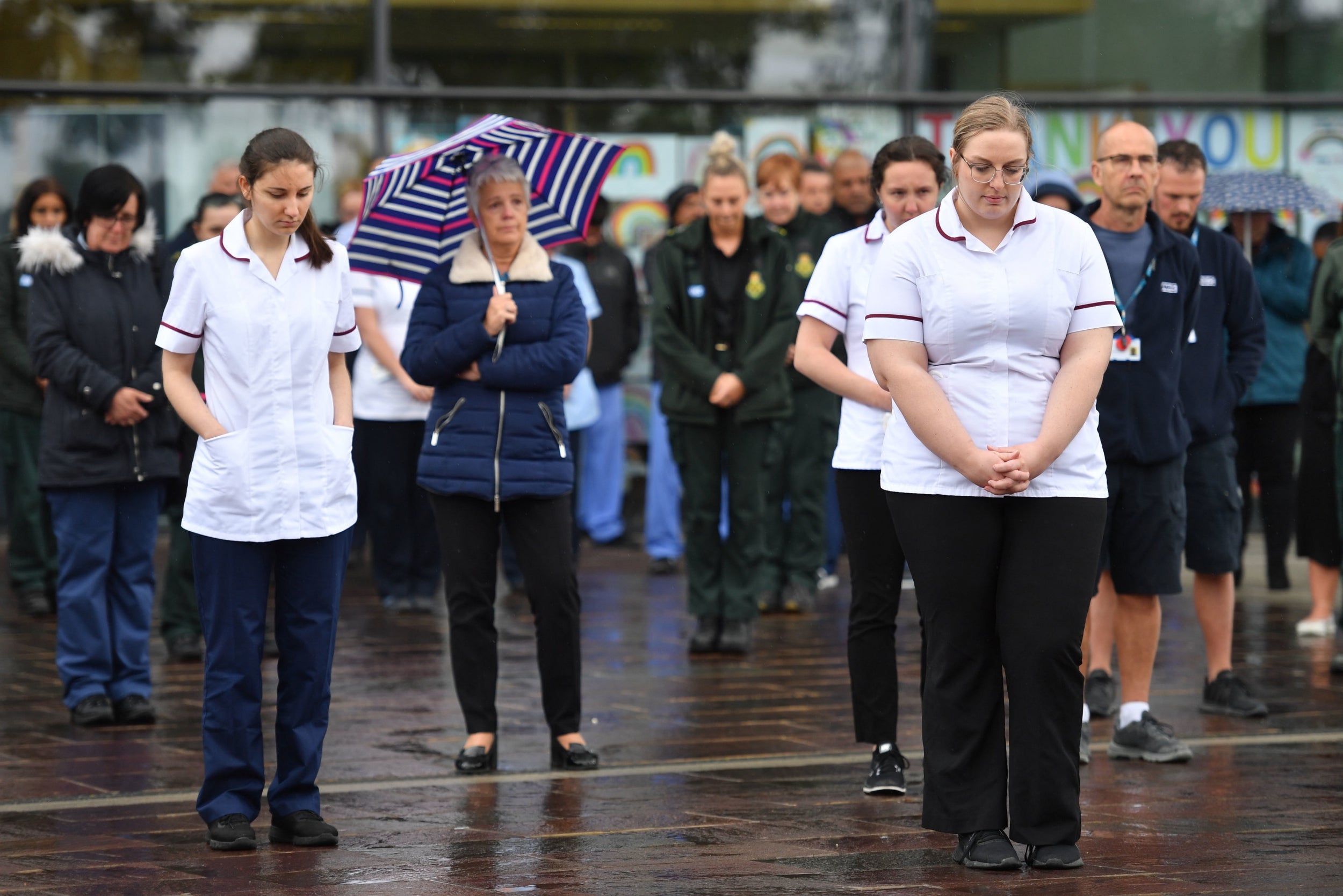
29/30 Royal Derby Hospital
PA
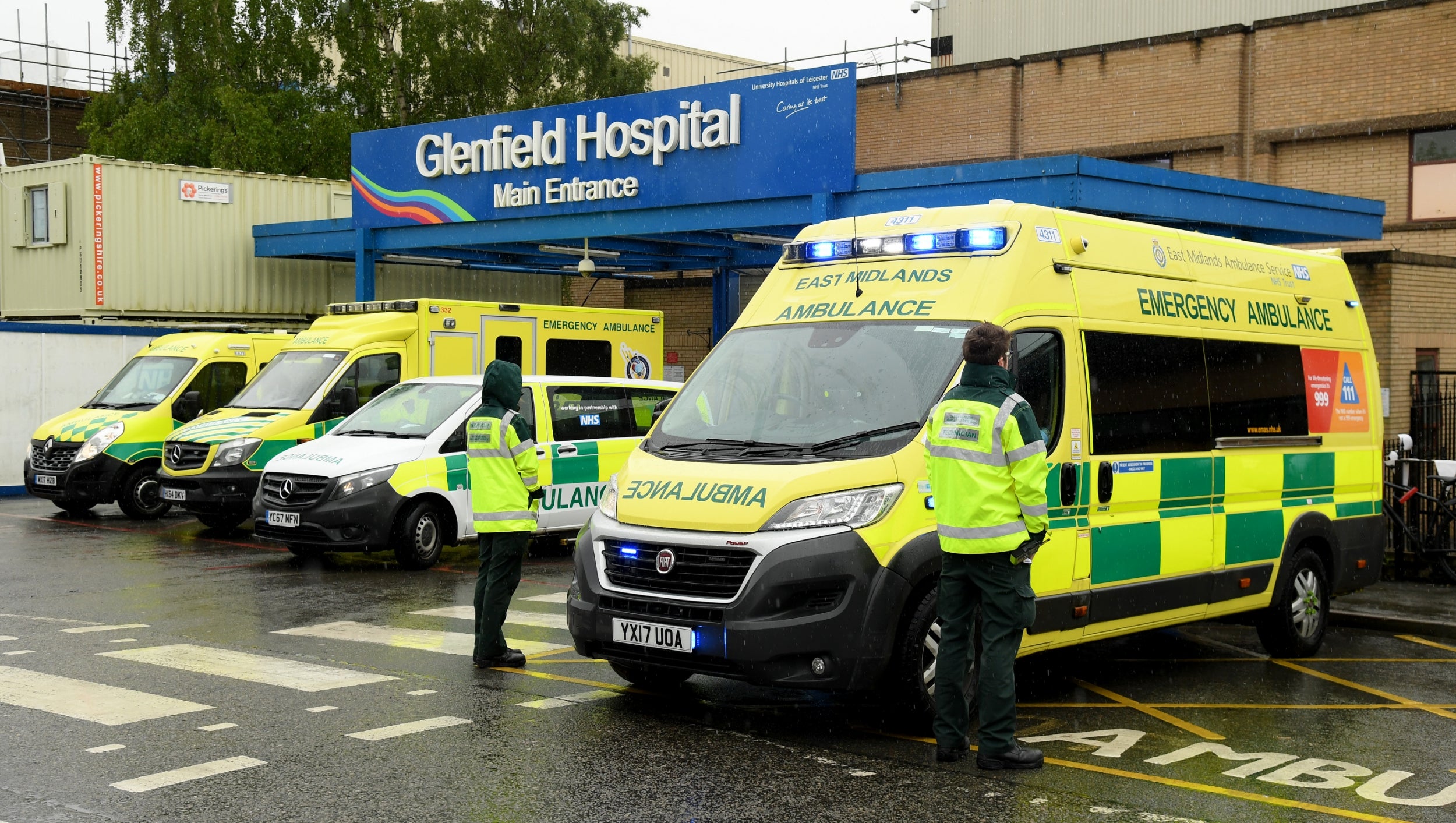
30/30 Leicester,
NHS workers during a minute’s silence outside Glenfield Hospital
Getty

1/30
Staff react outside Salford Royal Hospital in Manchester during a minute’s silence to pay tribute to the NHS staff and key workers who have died during the coronavirus outbreak
PA

2/30
Staff inside Camberwell bus depot in London, during a minute’s silence
PA

3/30
NHS staff at the Mater hospital in Belfast, during a minute’s silence to pay tribute to the NHS staff and key workers who have died during the coronavirus outbreak.
PA

4/30
Shoppers observe a minute’s silence in Tescos in Shoreham
Getty

5/30
Firefighters outside Godstone fire station
PA

6/30 Salford Royal Hospital
Getty

7/30 Salford Royal Hospital
PA

8/30
Hospital workers take part in a protest calling on the British government to provide PPE across Britain for all workers in care, the NHS and other vital public services after a nationwide minute’s silence at University College Hospital in London
AP

9/30
A school children’s poster hanging outside Glenfield Hospital during a minute’s silence
Getty

10/30
A man holds a placard that reads “People’s health before profit” outside St Thomas hospital
Getty

11/30
Staff members applaud outside the Royal Derby Hospital, following a minute’s silence
PA

12/30
Cabinet Secretary Mark Sedwill, Prime minister Boris Johnson and Chancellor of the Exchequer Rishi Sunak, stand inside 10 Downing Street, London, to observe a minutes silence in tribute to the NHS staff and key workers who have died during the coronavirus outbreak
PA

13/30 University College Hospital, London
Hospital workers hold placards with the names of their colleagues who have died from coronavirus as they take part in a protest calling on the British government to provide PPE
AP

14/30
Staff at Waterloo Station in London, stand to observe a minute’s silence, to pay tribute to NHS and key workers who have died with coronavirus
AP

15/30
Medical staff at the Louisa Jordan hospital stand during a UK wide minutes silence to commemorate the key workers who have died with coronavirus in Glasgow
Getty

16/30 London
An NHS worker observes a minute’s silence at Chelsea and Westminster Hospital
Reuters

17/30 Chelsea and Westminster Hospital in London
AFP via Getty

18/30 Belfast, Northern Ireland
NHS staff observe a minutes silence at Mater Infirmorum Hospital
Reuters

19/30 Plymouth
NHS workers hold a minute’s silence outside the main entrance of Derriford Hospital
Getty

20/30
NHS Frimley Park Hospital staff at the A&E department observe a minute’s silence
Getty

21/30 Mater Infirmorum Hospital
People applaud after a minutes silence in honour of key workers
Reuters

22/30 Waterloo Station, London
AP

23/30
Wreaths laid outside Sheffield town hall
PA

24/30
A group of trade unionists and supporters standing outside Sheffield town hall
PA

25/30
First Minister Nicola Sturgeon stands outside St Andrew’s House in Edinburgh to observe a minute’s silence in tribute to the NHS staff and key workers who have died during the coronavirus outbreak
PA

26/30
Staff stand outside the Royal Derby Hospital, during a minutes silence
PA

27/30 London
Police officers observe a minutes silence at Guy’s Hospital
Reuters

28/30
A woman standing outside Sheffield town hall
PA

29/30 Royal Derby Hospital
PA

30/30 Leicester,
NHS workers during a minute’s silence outside Glenfield Hospital
Getty
She added: “We had just under 15,000 people booked for an appointment but that is a 62 per cent reduction and clearly it’s very important we address that because early detection is vital for increased survival.”
Dame Cally said it was not the case that two-thirds of cancers were being missed, as the service has roughly an 8 per cent conversion rate for urgent referrals.
She said: “It’s really important to state that urgent referrals and urgent cancer treatments is continuing – obviously we need to tailor that to patient’s individual risk but I think it would be wrong to make a mathematical calculation on that basis.
“It’s very important that we get people coming forward but I think to translate that into missed diagnosis and poor survival would not be a responsible position at this point.”



